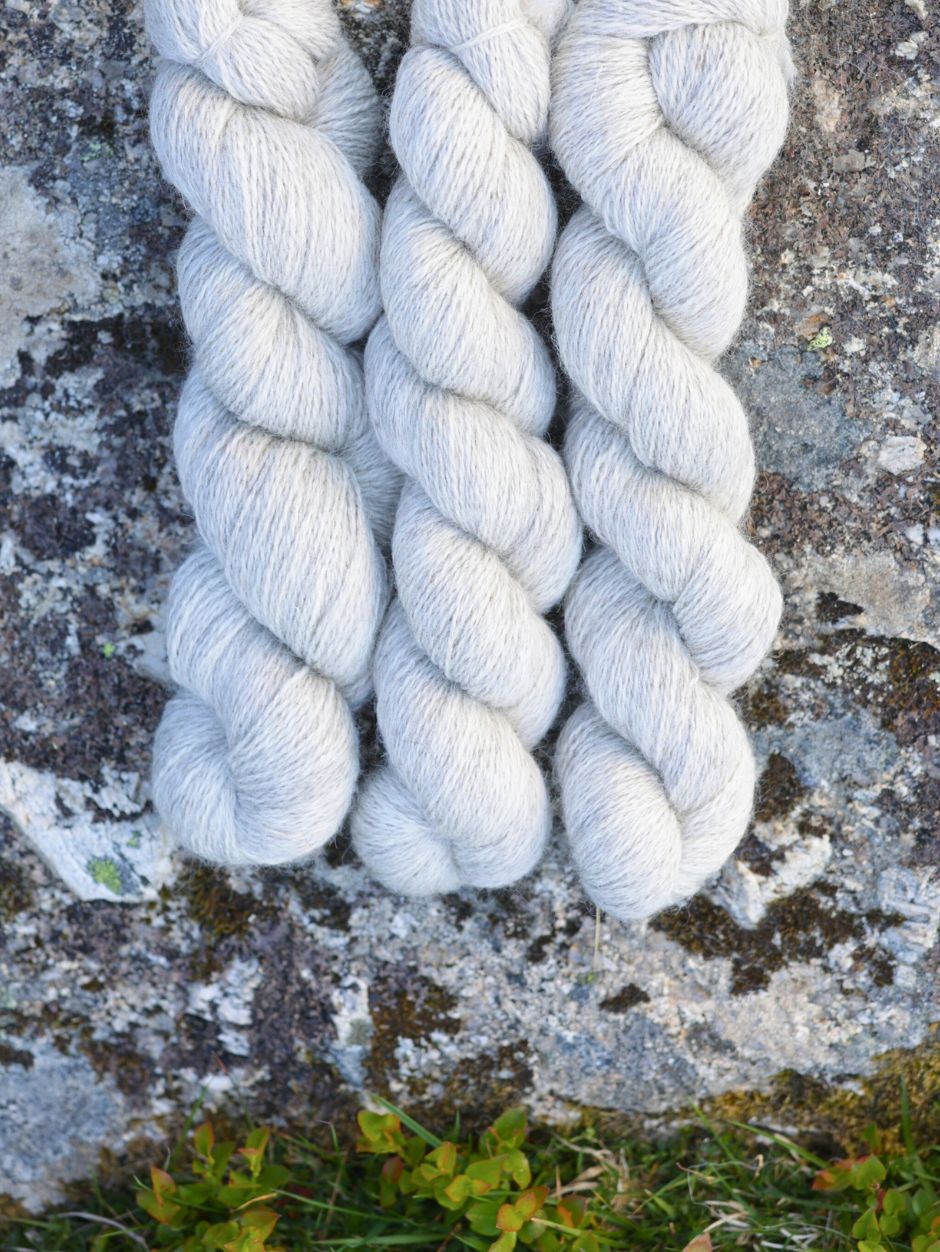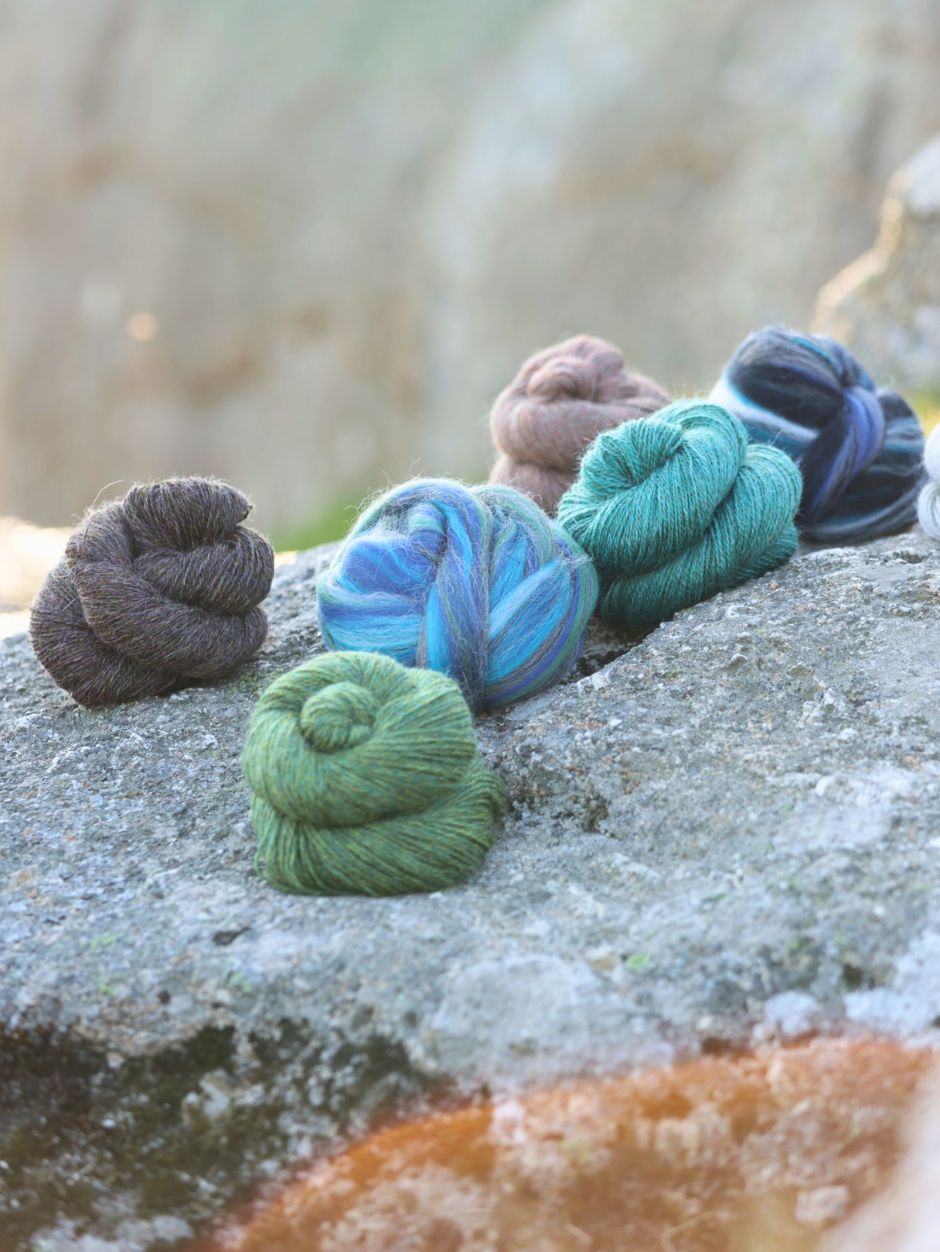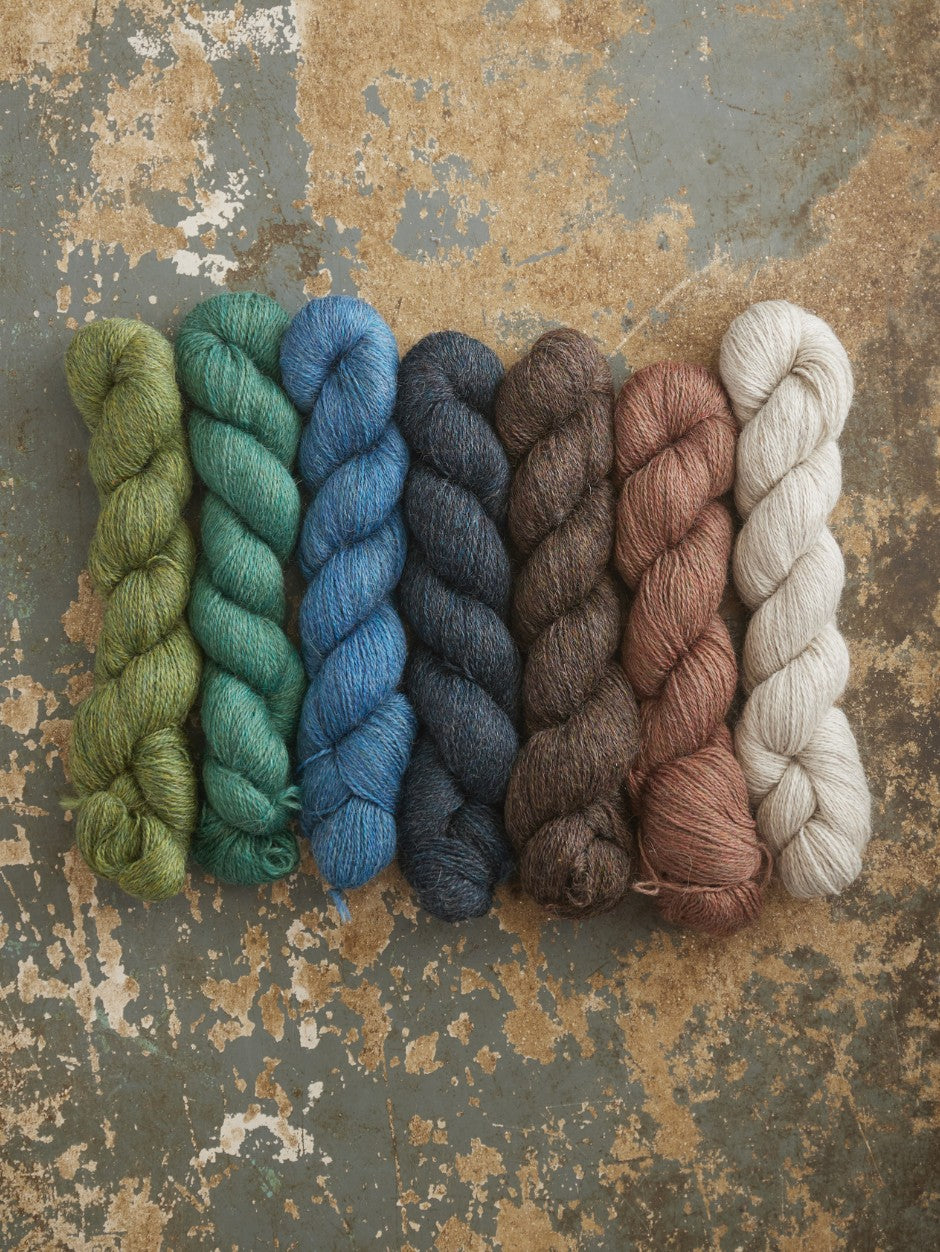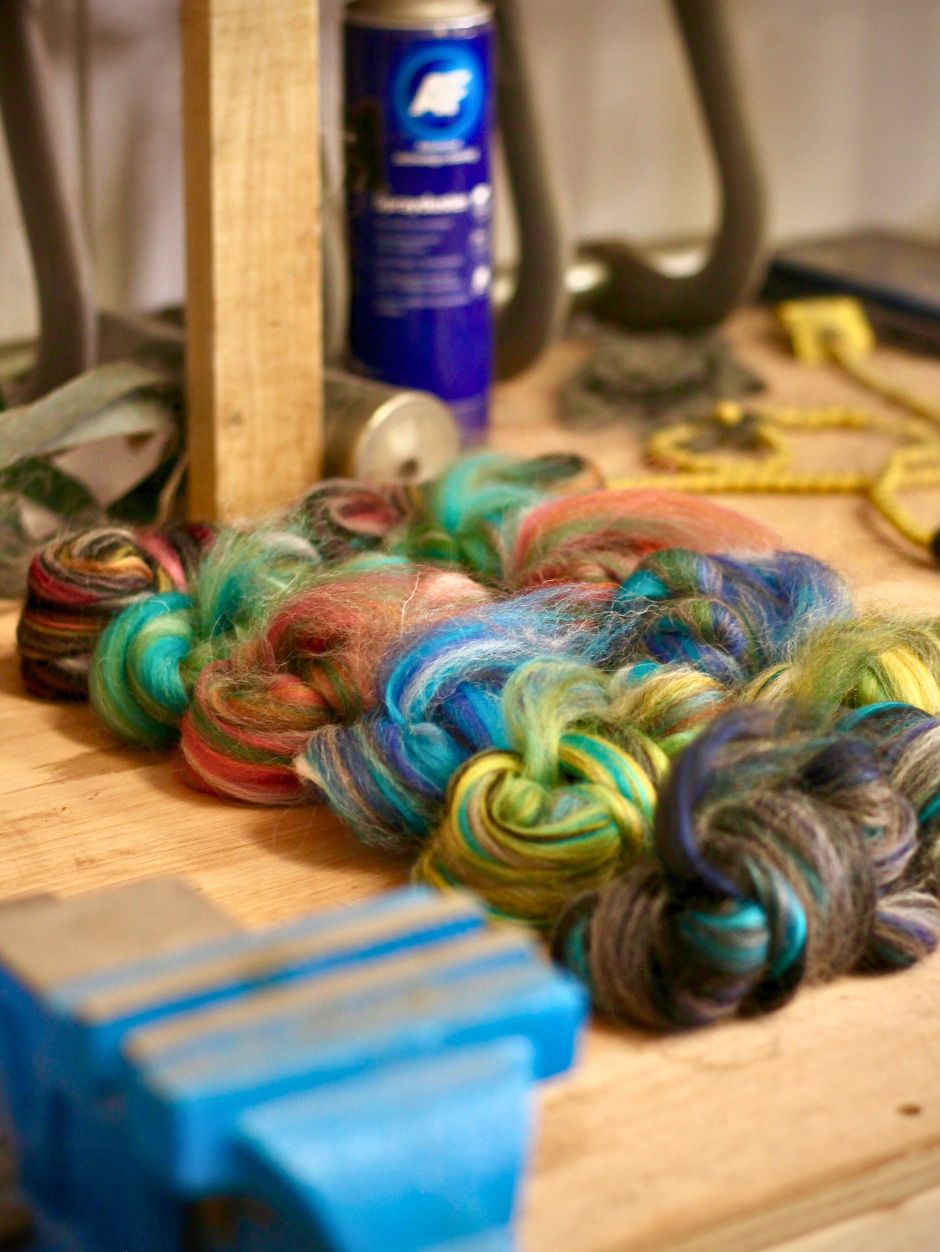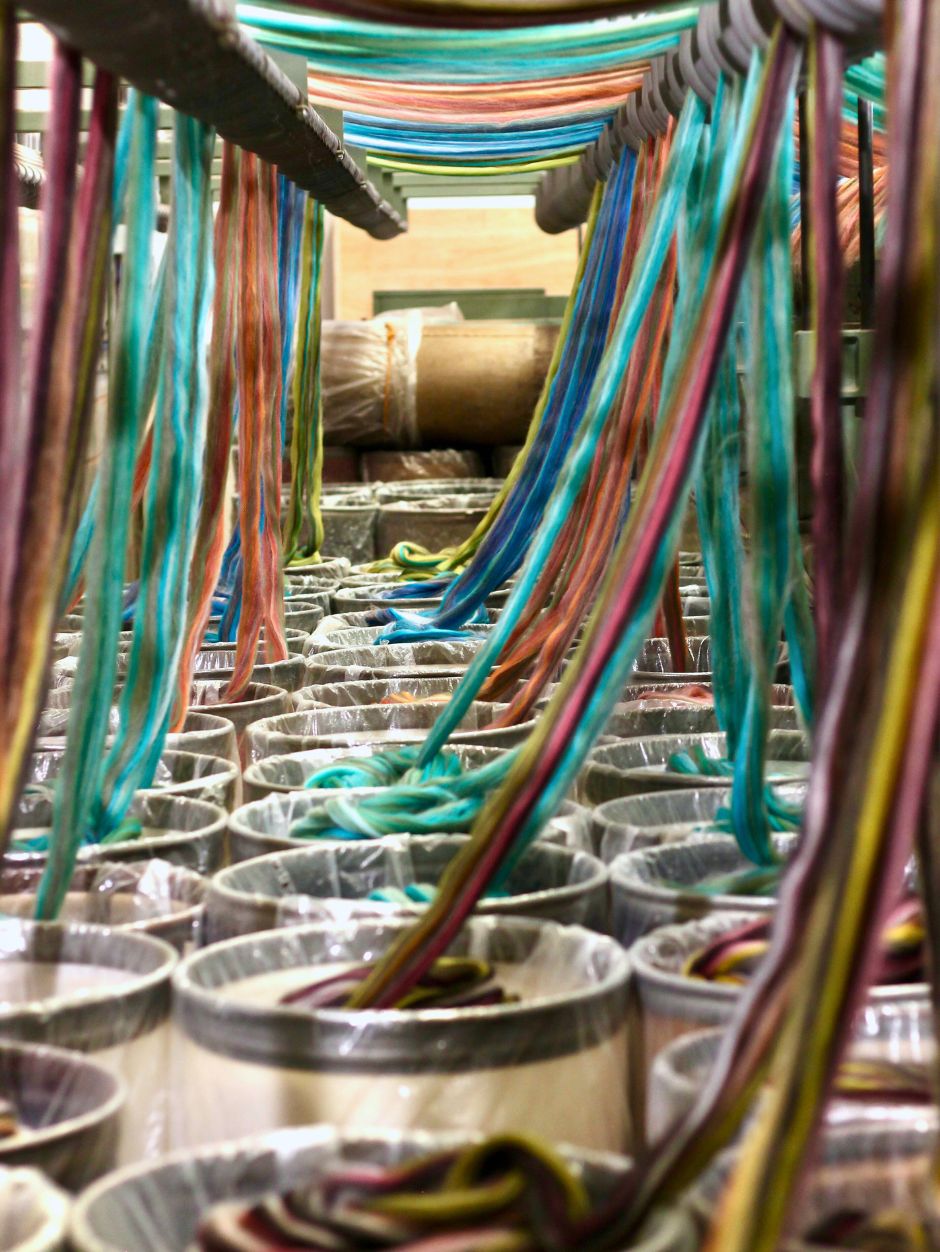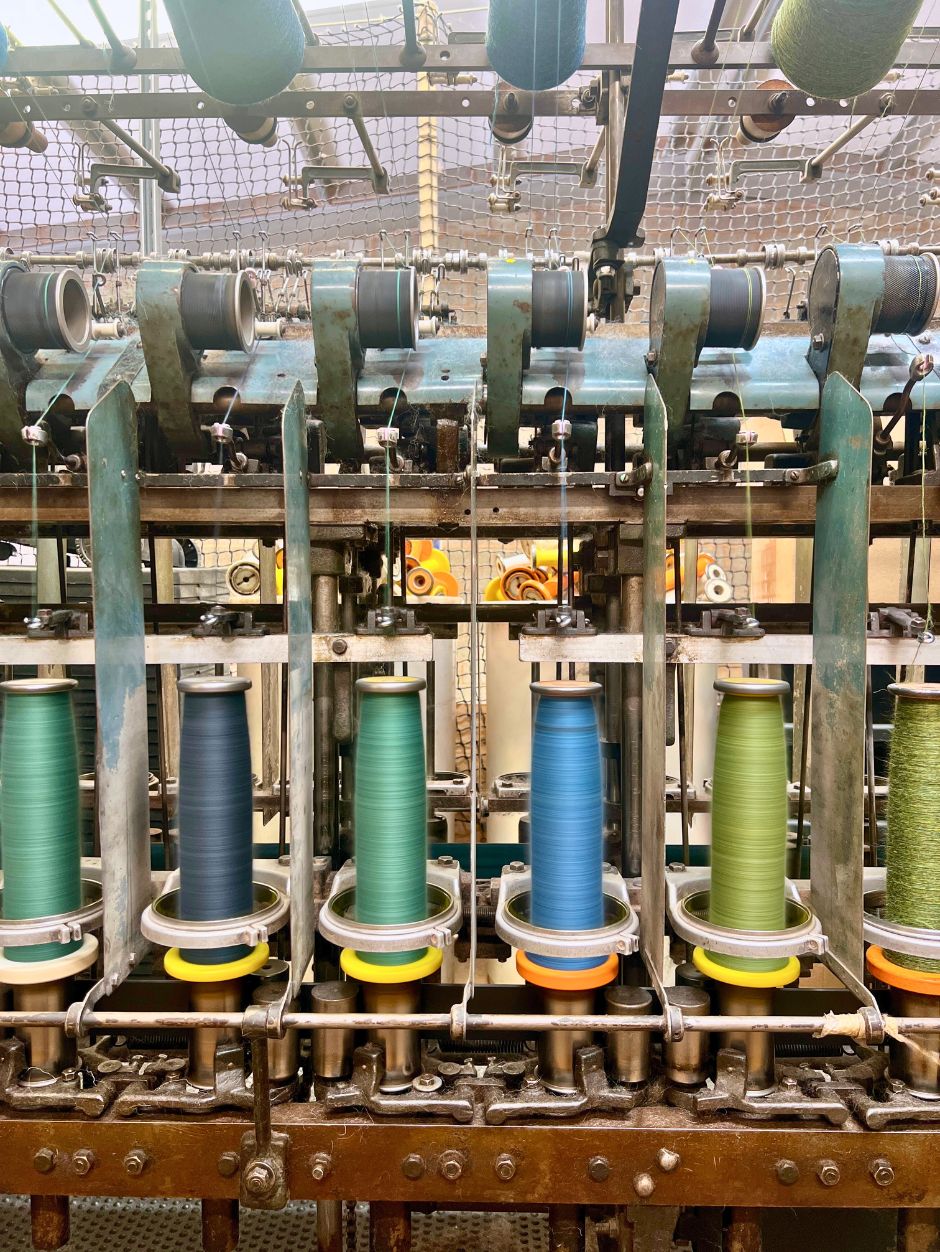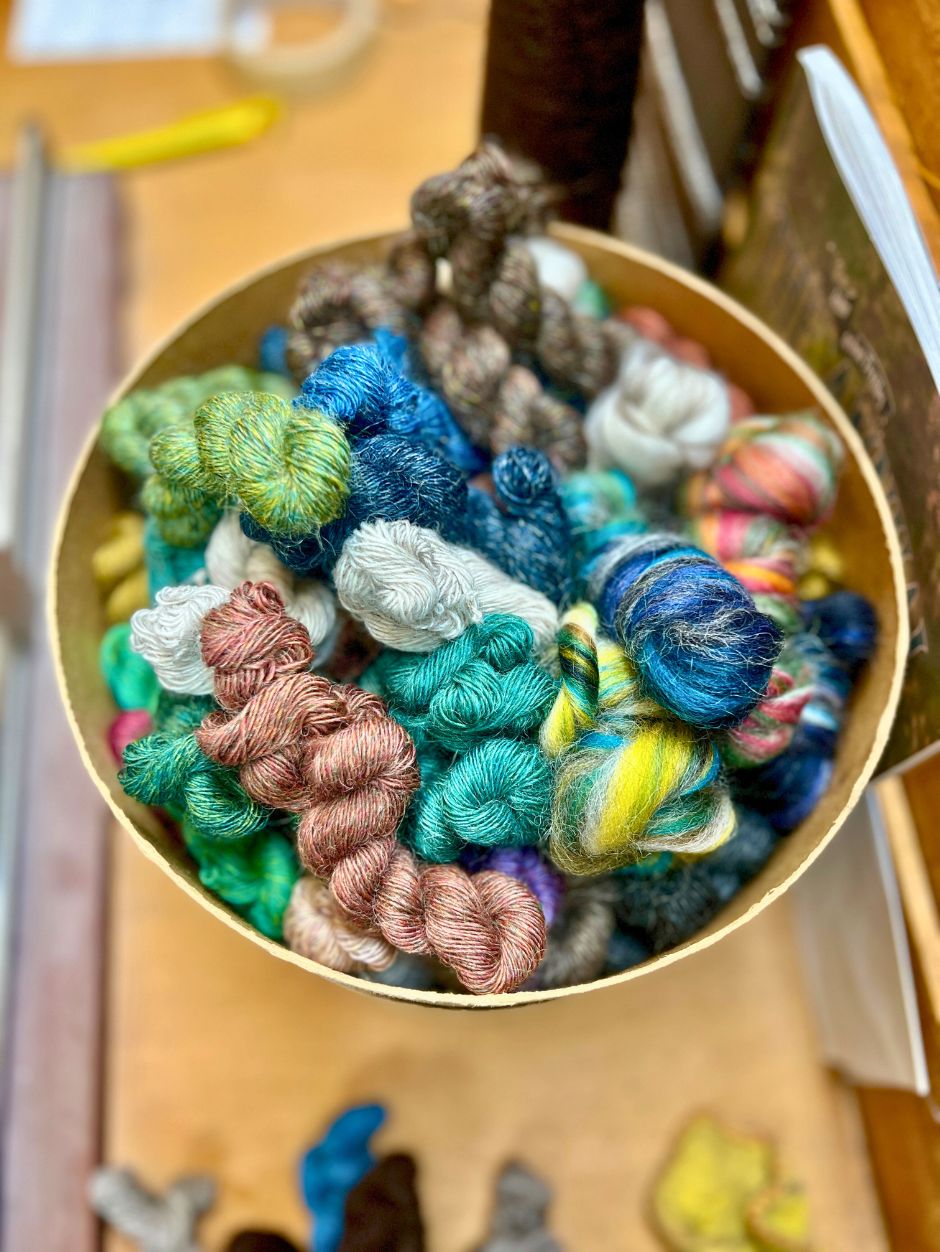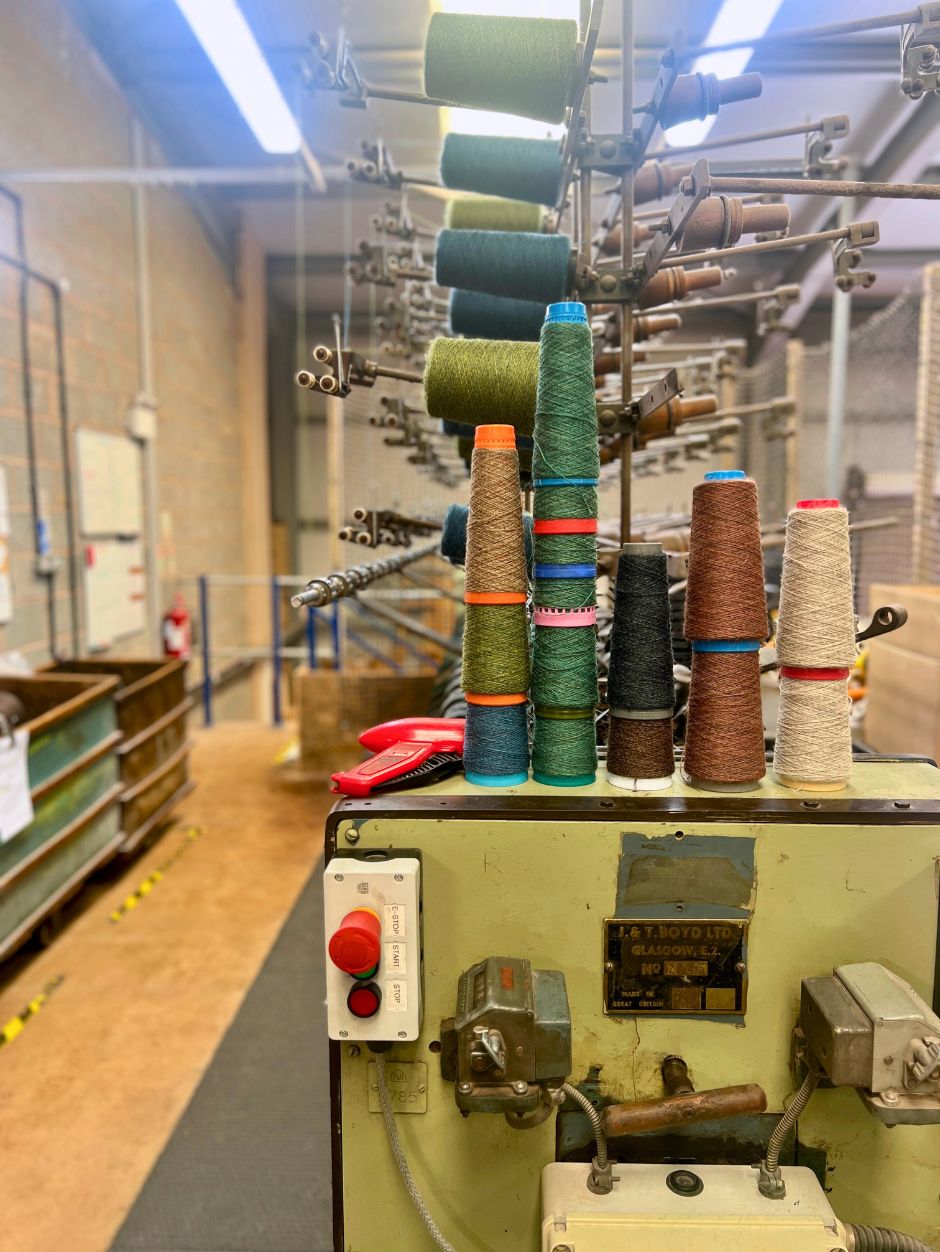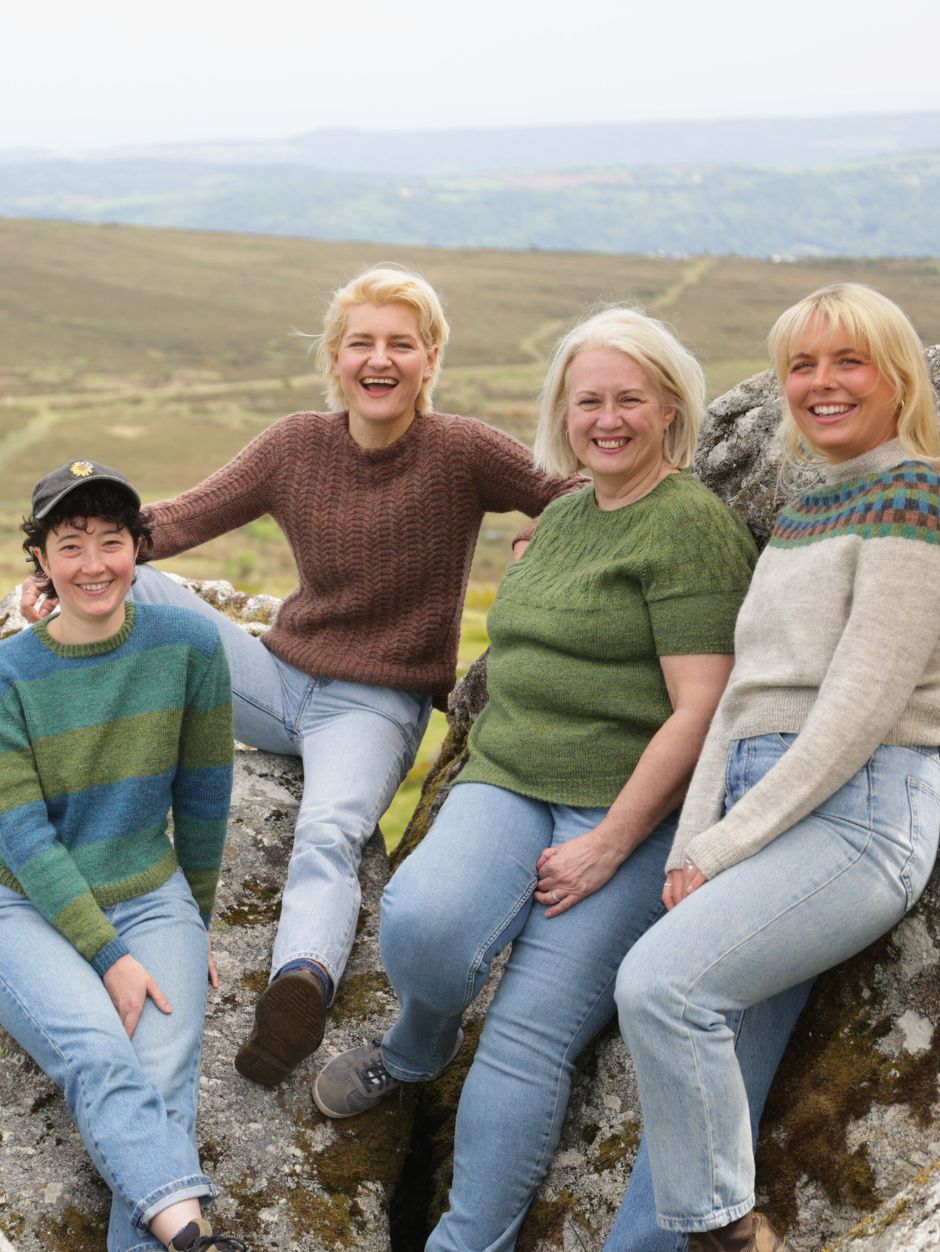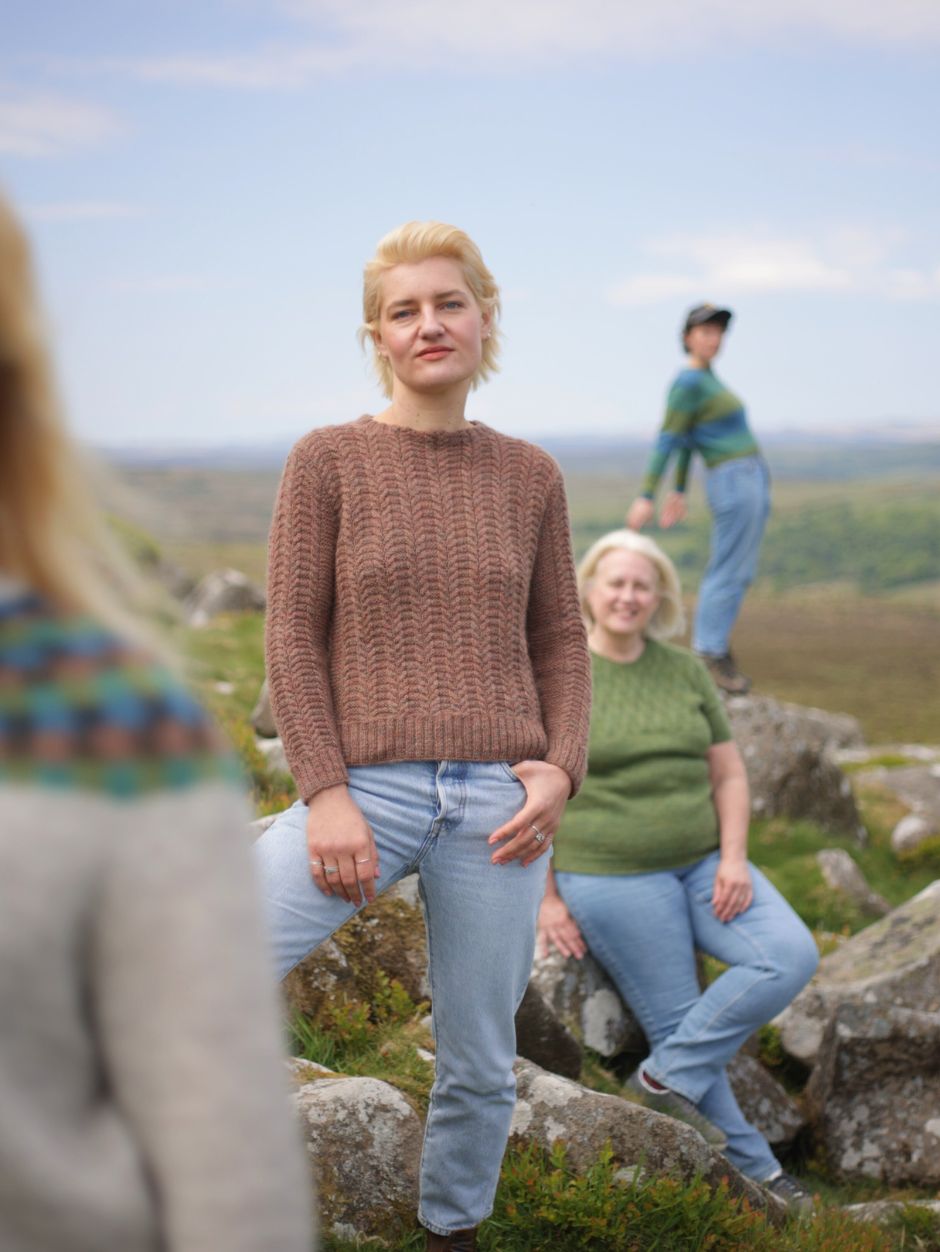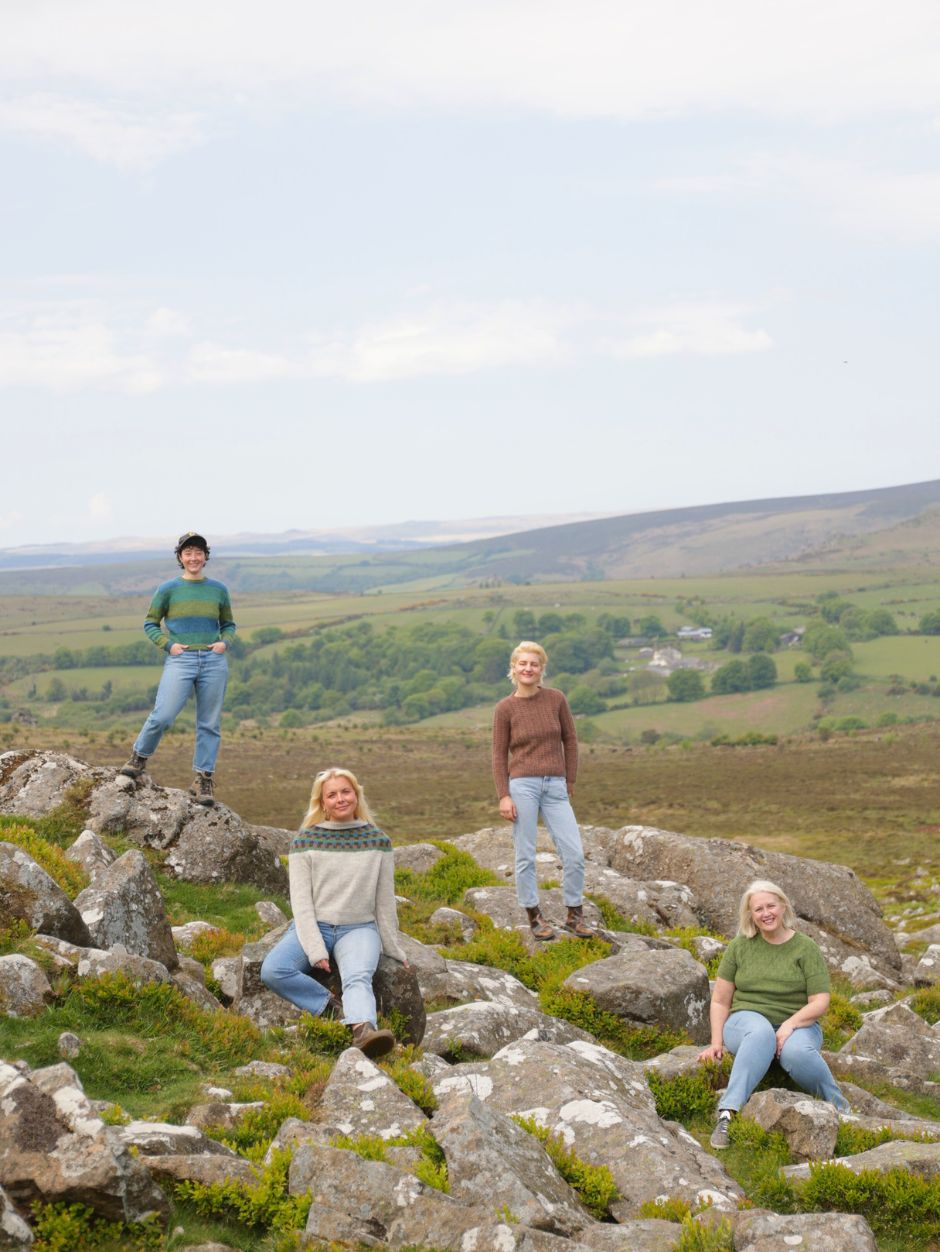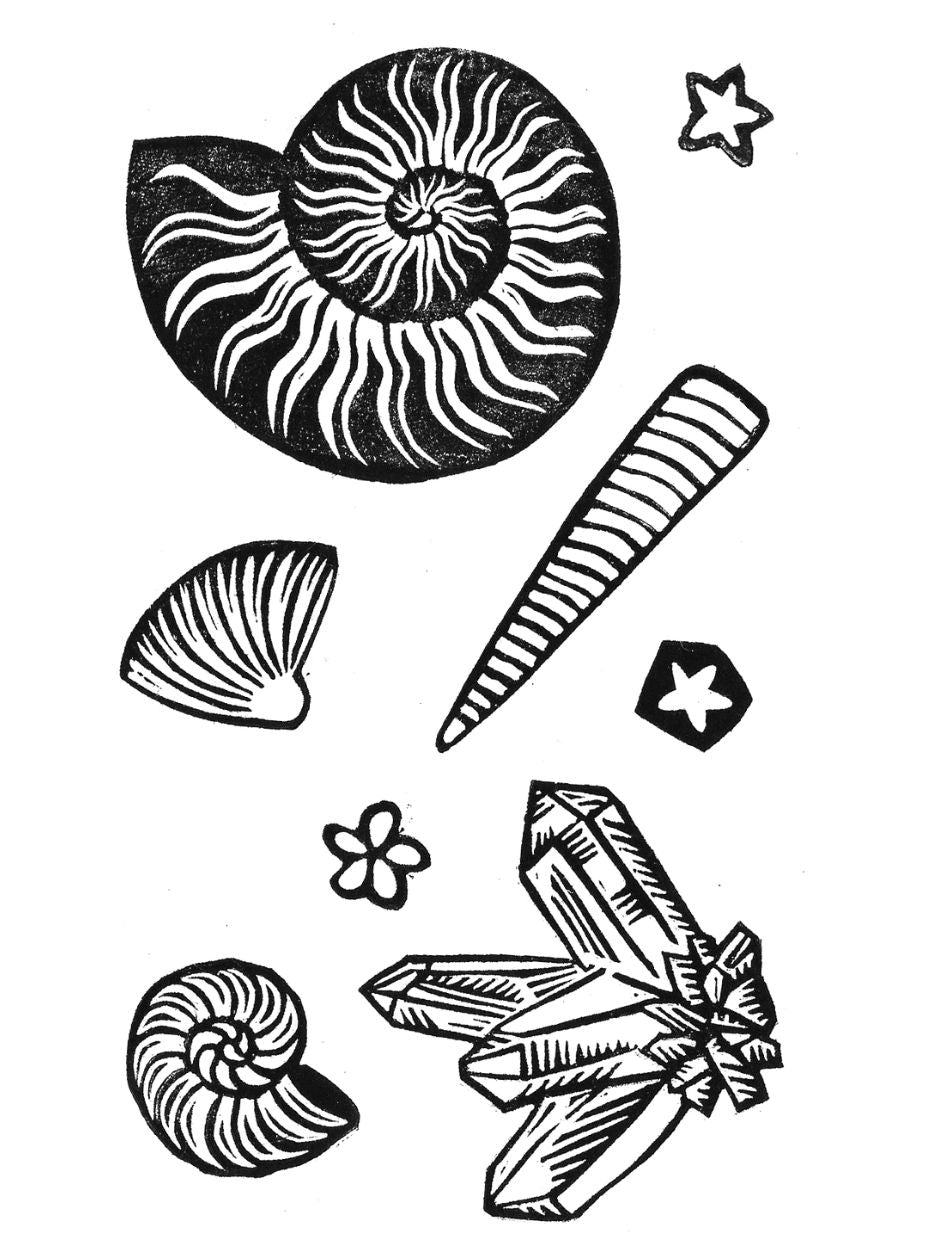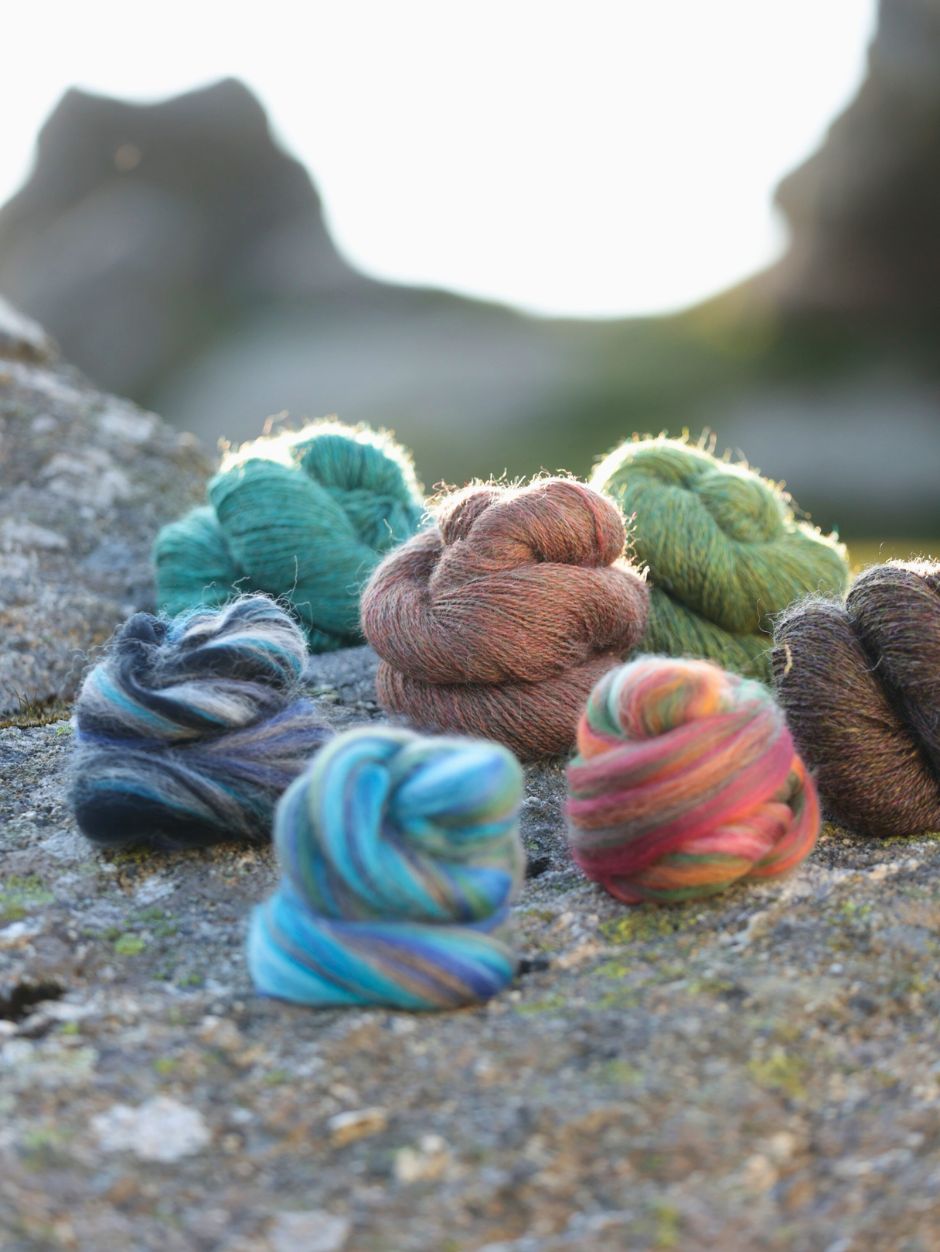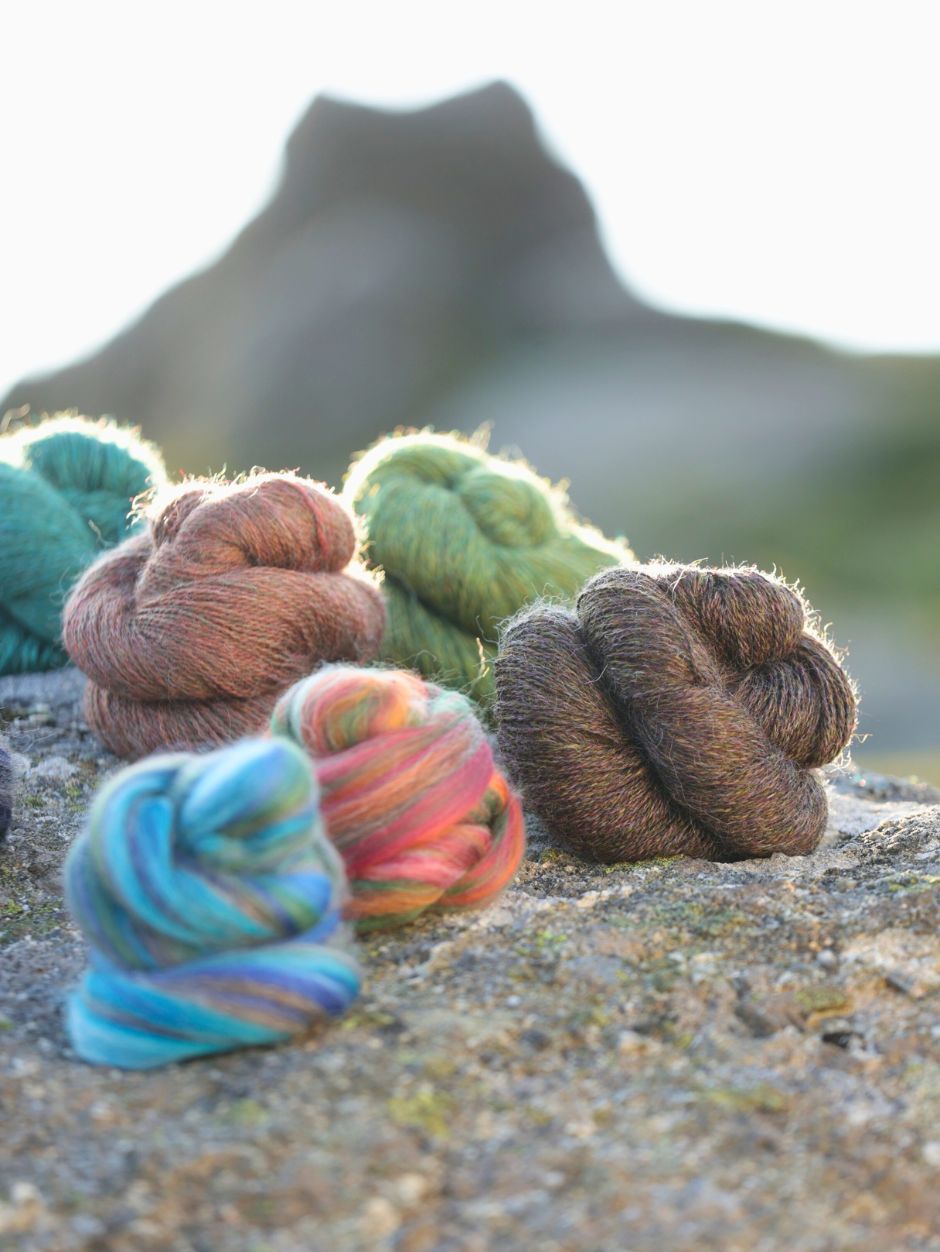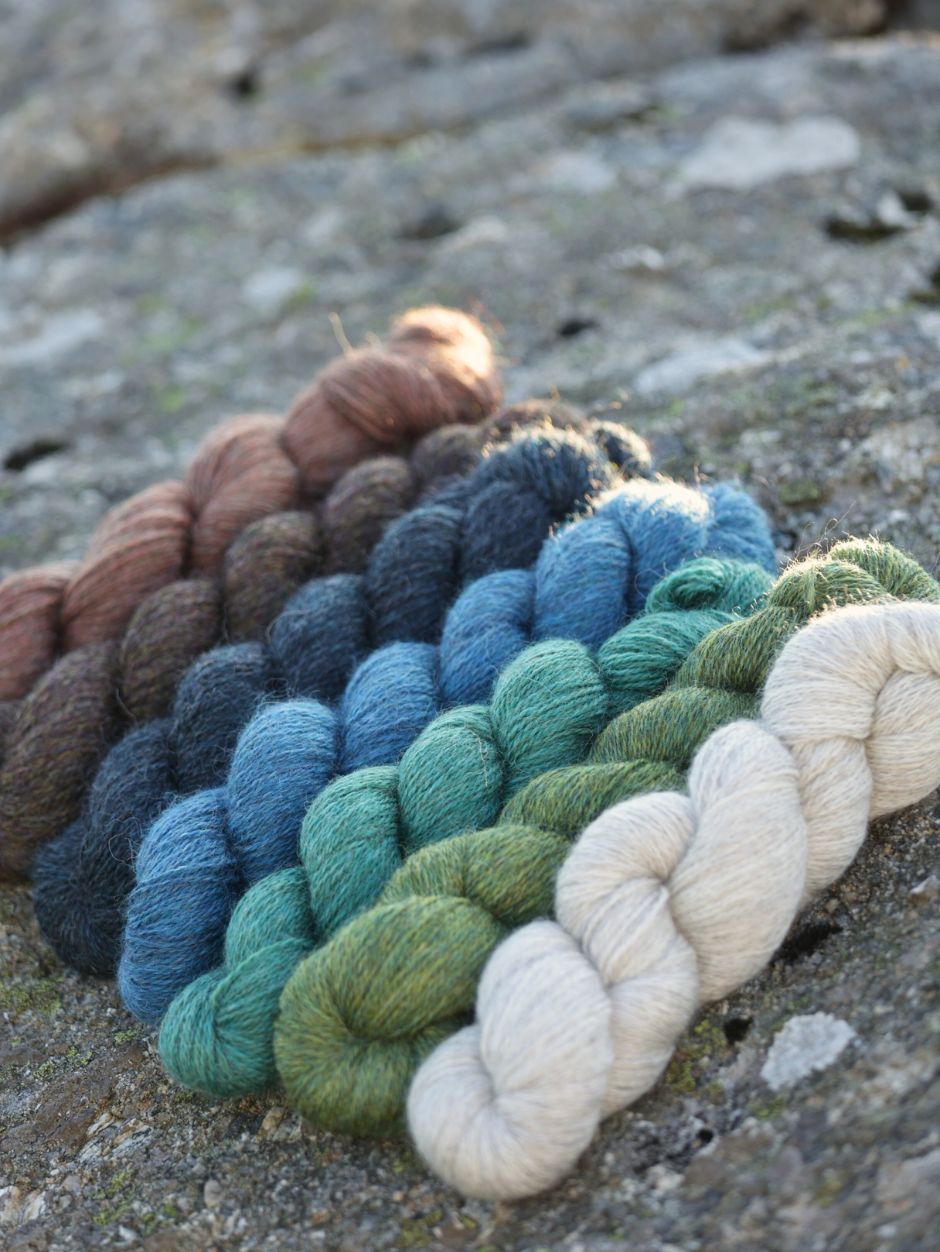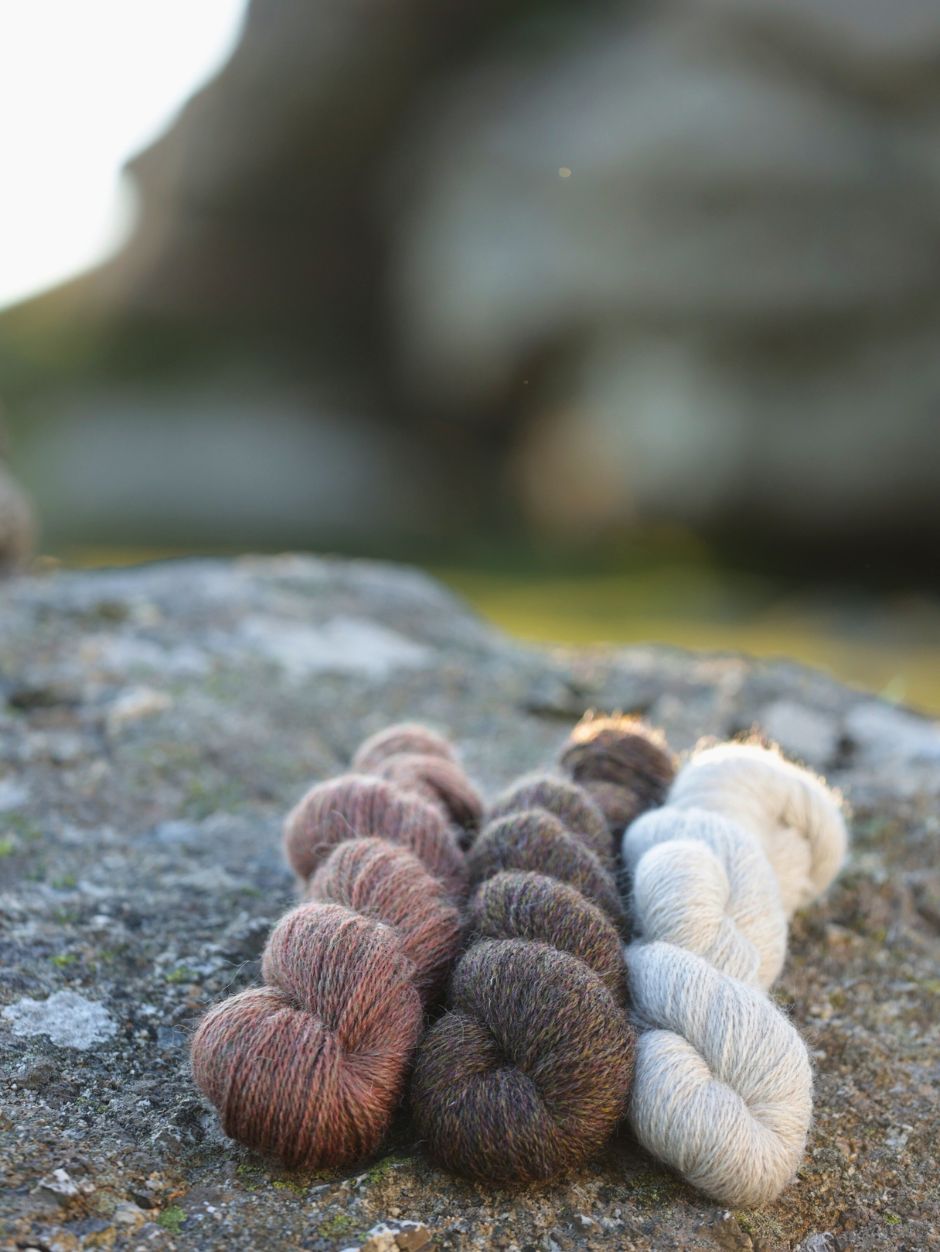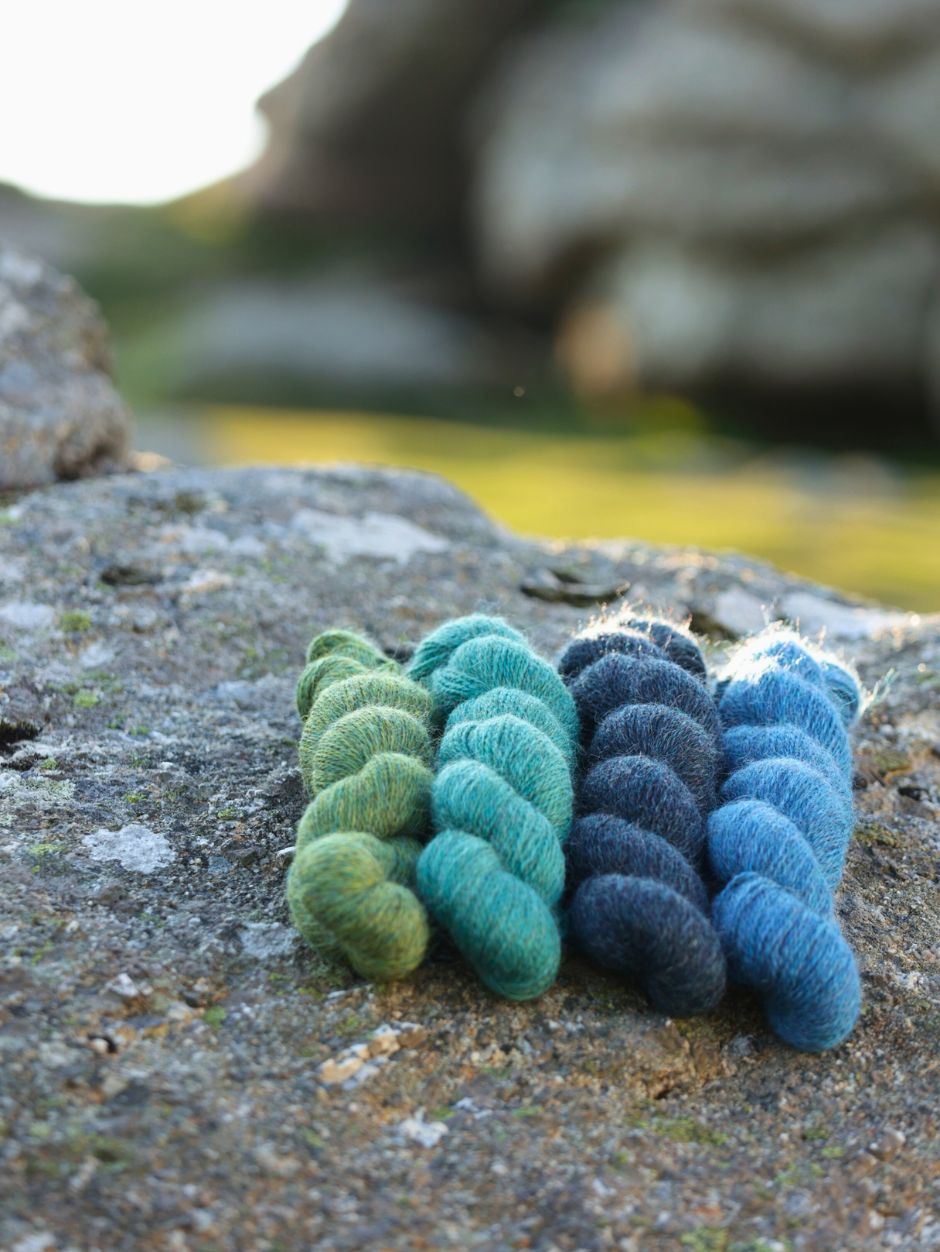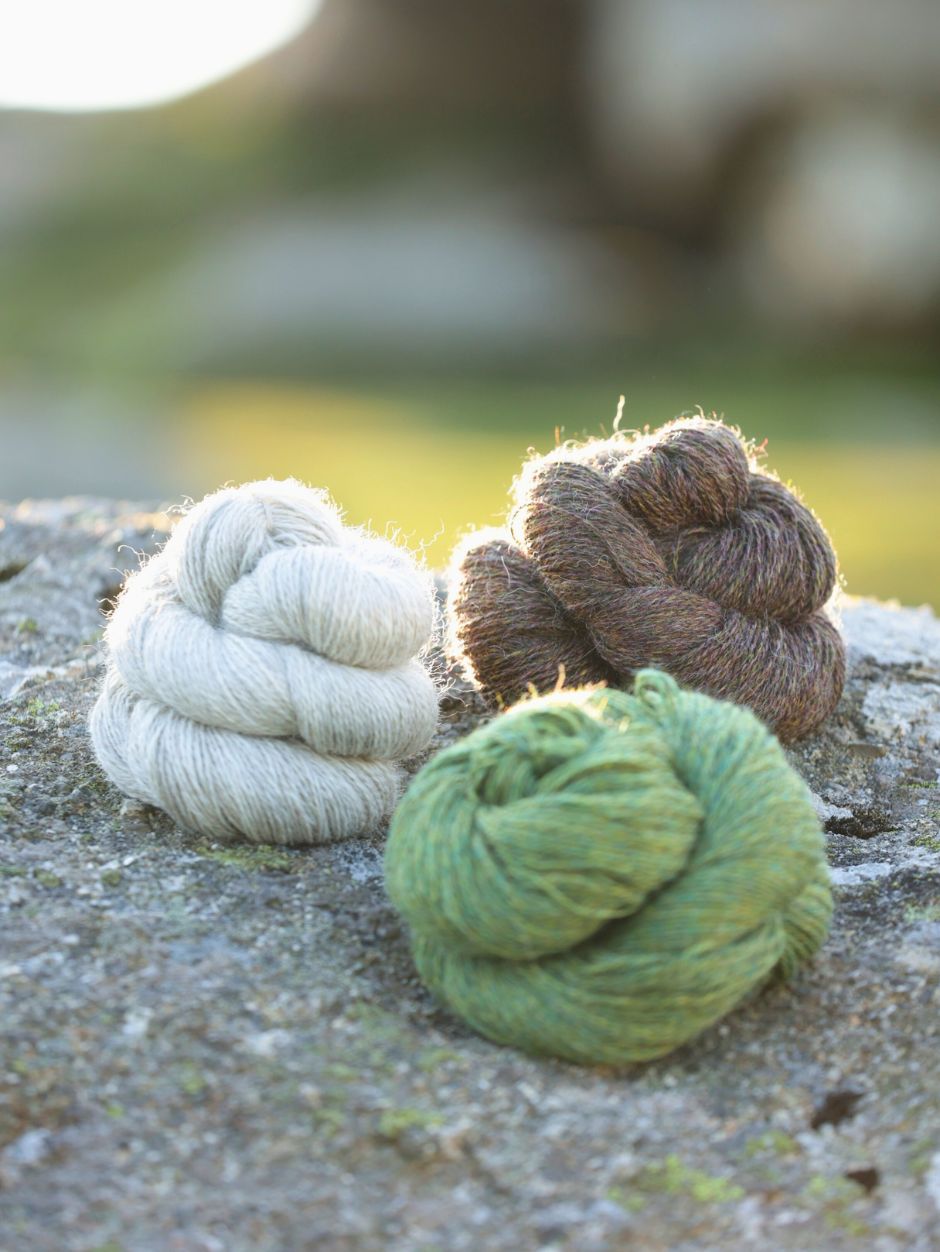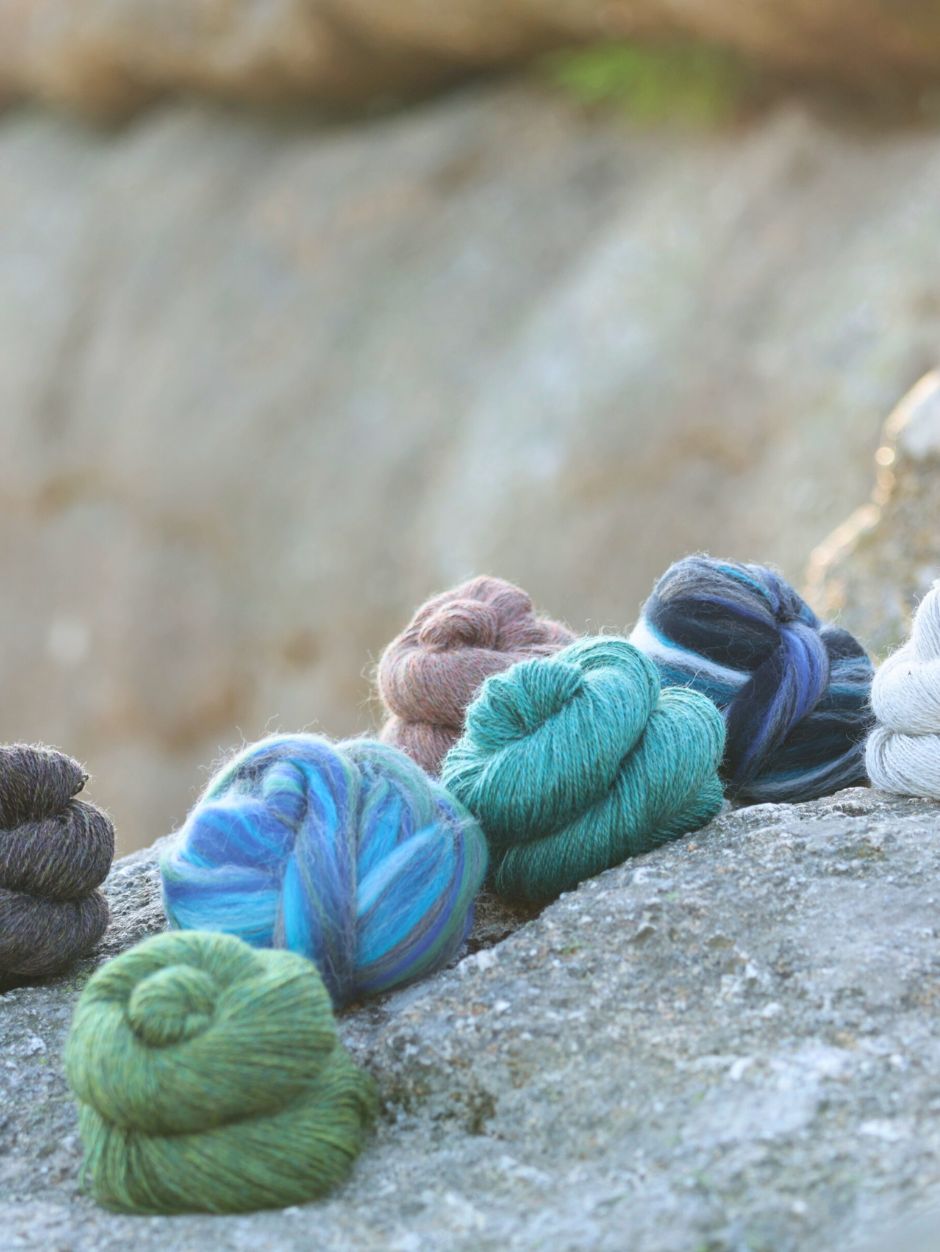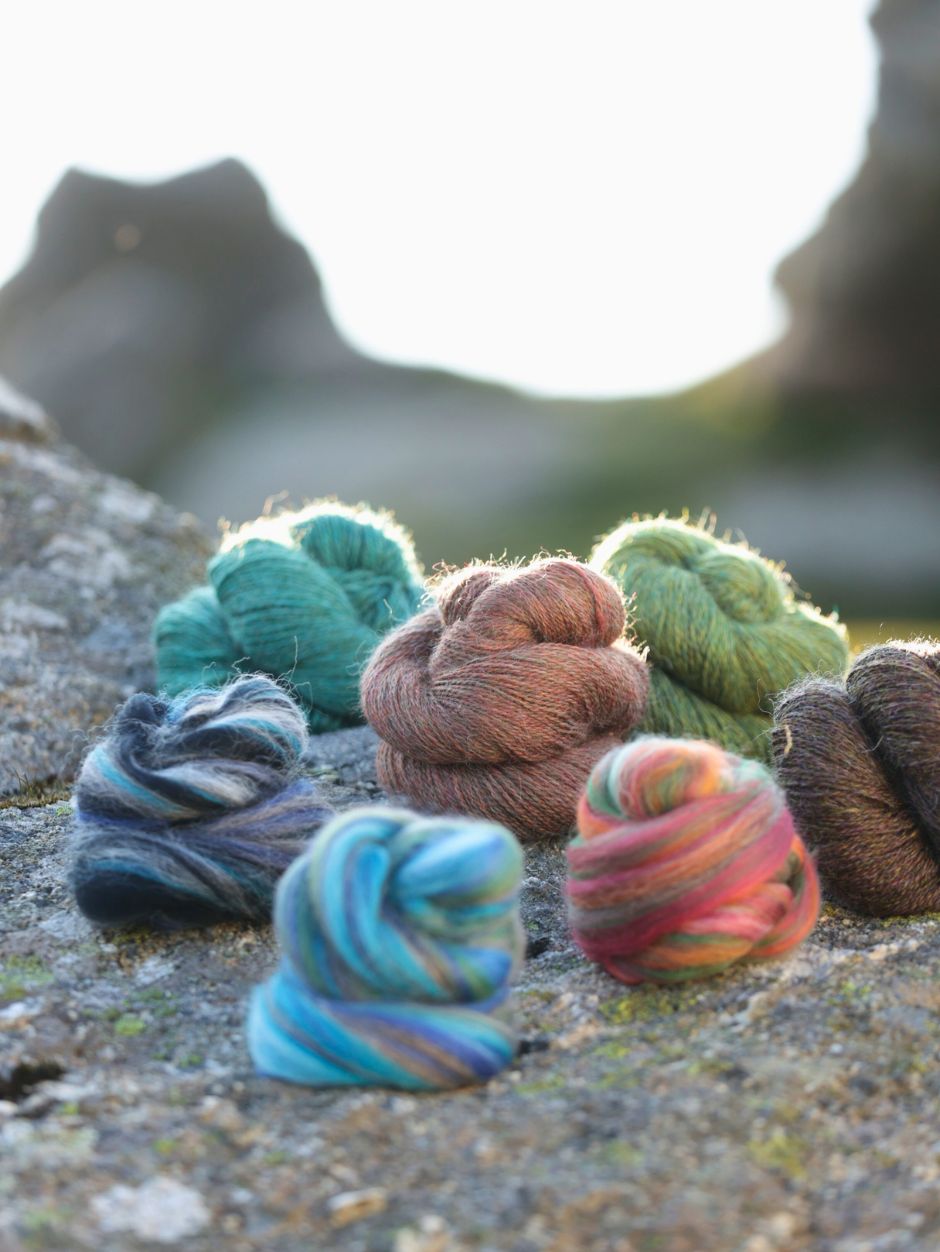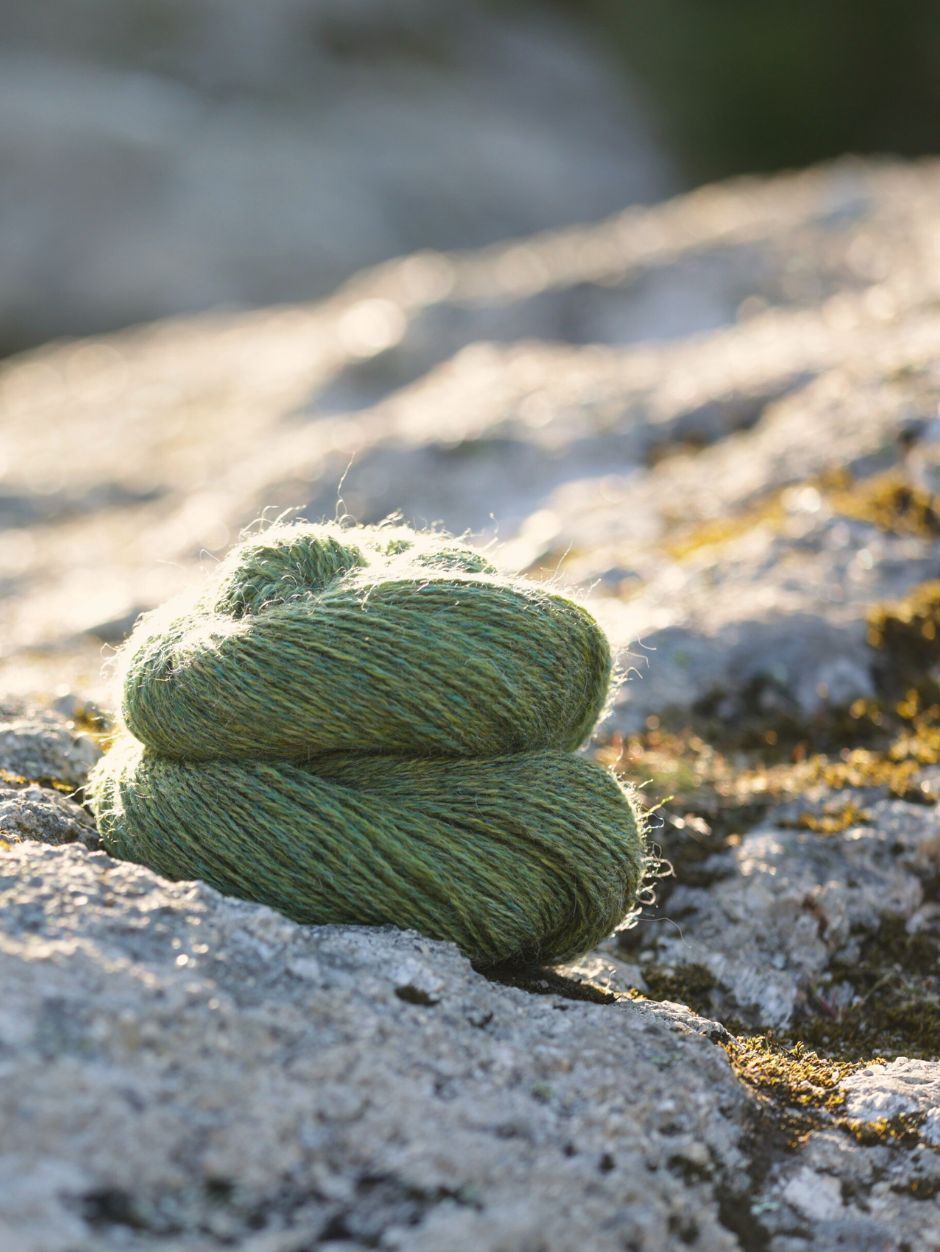Mineralogy 4ply - MOW Special
Mineralogy 4ply - MOW Special
Mineralogy 4ply - MOW Special
Mineralogy 4ply - MOW Special
4ply/Fingering: 400m per 100g / 437yds per 100g
75% Falklands Corriedale / 17% Grey Exmoor Blueface / 8% Romney (non-superwash)
Please note that Blue Slate has now sold out permanently.
As part of our annual Mill Open Weekend shenanigans, we always create a limited-edition mini collection of yarn and tops to help celebrate in style. We thought we would try something new this year, by making you all honorary Mill Folk and inviting you to help us! Introducing, Mineralogy…
First you chose a soft and lustrous blend of Corriedale, Grey Exmoor Blueface and Romney. It is mostly Corriedale, a gorgeously soft and bouncy fibre, well suited to pretty much anything you might fancy making in it! You chose to blend this Corriedale with soft and lustrous Grey Exmoor Blueface, and then to enhance the drape by adding a dash of Romney. The resulting yarn is buttery soft with a gentle handle and warm, woolly character. We’ve accentuated this softness by spinning Mineralogy as a 2-fold, giving it a subtle stitch definition and delicate halo.
We love drawing on the natural world when creating themes for our ranges, so we were thrilled when you selected Geology and Minerals as an inspiration for your chosen colour palette. There is so much inspiration to draw from with this theme, from a favourite pebble picked up on a beach, to the cliffs and formations which can be spotted the length and breadth of the UK. In keeping with the theme, we’ve photographed this range, along with a few samples, at Haytor, one of Dartmoor’s most dramatic rock formations.
Specifications
Specifications
Thickness: 4ply / Fingering: 400m per 100g | 437yds per 100g
Blend: 75% Falklands Corriedale / 17% Grey Exmoor Blueface / 8% Romney (non-superwash)
Gauge: We do not give a recommended needle/hook size for our yarns, as everyone’s gauge is subtly different. It is possible to achieve quite a wide range of gauges with this yarn. A tighter gauge (more sts per cm/inch) will create a denser fabric and a looser gauge (fewer sts) will create a drapier fabric.
If you are substituting yarn for a pattern, we recommend comparing the meterage. If your yarn is within 25 metres of the given yarn per 100g then you should be able to happily get the correct gauge.
Colour Blending: We start with solid coloured tops (aligned fibre) and blend our nuanced, heathered shades using precise recipes. If you look closely at any of our yarns, you’ll see that each heathered shade contains a multitude of colours within it.
The entire range is created from a handful of base colours, making it easy to find harmonious colour combos for colourwork projects.
Worsted Spun: All our yarns are worsted spun. This means the fibres are parallel to each other, giving them greater drape, strength and softness than a woollen spun equivalent would. Learn more about worsted and woollen yarns on our blog.
Non-superwash: All our yarns (except for Exmoor Sock) are not superwash-treated. We like to keep things natural! Plus, non-superwash yarns retain the benefits of wool: they keep you warm and cosy, don’t require a lot of washing, and will keep their in shape, due to the natural crimp of wool. If you’re curious, you can read more about the difference between non-superwash and superwash yarns on the blog.
Fibre Characteristics
Fibre Characteristics
Falklands Corriedale: This fibre has a good long staple length, is smooth with a hint of lustre and oodles of bounce. The breed is derived from a cross of the Merino sheep and Lincoln Longwool. Micron: 29; Average Staple Length: 12.5cm/5”
Grey Exmoor Blueface: We found this fibre by visiting our local British Wool Marketing Board grading station. It is pale silver in colour, wonderfully soft, with a delicate woolly halo and plenty of lustre. The sheep are a crossbreed of the distinguished Bluefaced Leicester (the softest British sheep breed) with a local hill sheep. Micron: 33; Average Staple Length: 11.5cm/4.5”
Romney: This breed has been farmed since the 13th century and originates from the Romney Marsh area of Kent. Their fibre is fine and semi-lustrous with good drape and a little bounce, perfect for adding a little sheen. Micron: 34; Average Staple Length: 10cm/4”
British Wool Blend
British Wool Blend
This base is a Traceable Wool Blend. The UK portion of this fibre purchased from the British Wool Marketing Board (BWMB) uses their new traceability scheme meaning that all the wool is fully traceable back to the exact farm it came from. We know which farmer, in which area, contributed to every bale of wool we process, including how many sheep produced their share.
However, our climate here in the UK is not suited to Merino and Corriedale sheep. We make sure to source ours from the Falklands in order to ensure that the animals have been treated with the utmost care and are free from harmful mulesing.
Care Instructions
Care Instructions
We recommend that our yarns are gently washed before use as we don't do any washing or conditioning after the yarns are spun and skeined. You'll be amazed by how much the fibre blooms after a soak and it will certainly help you get a more accurate feel for gauge and character of the yarn over time.
If using hand dyed yarn then this step is not necessary, but you may wish to stripe your skeins for colour consistency.
Once your piece is finished, we recommend another hand wash before wet blocking the piece to the given dimensions. This will set all your stitches and guarantee that your garment looks its best.
Share
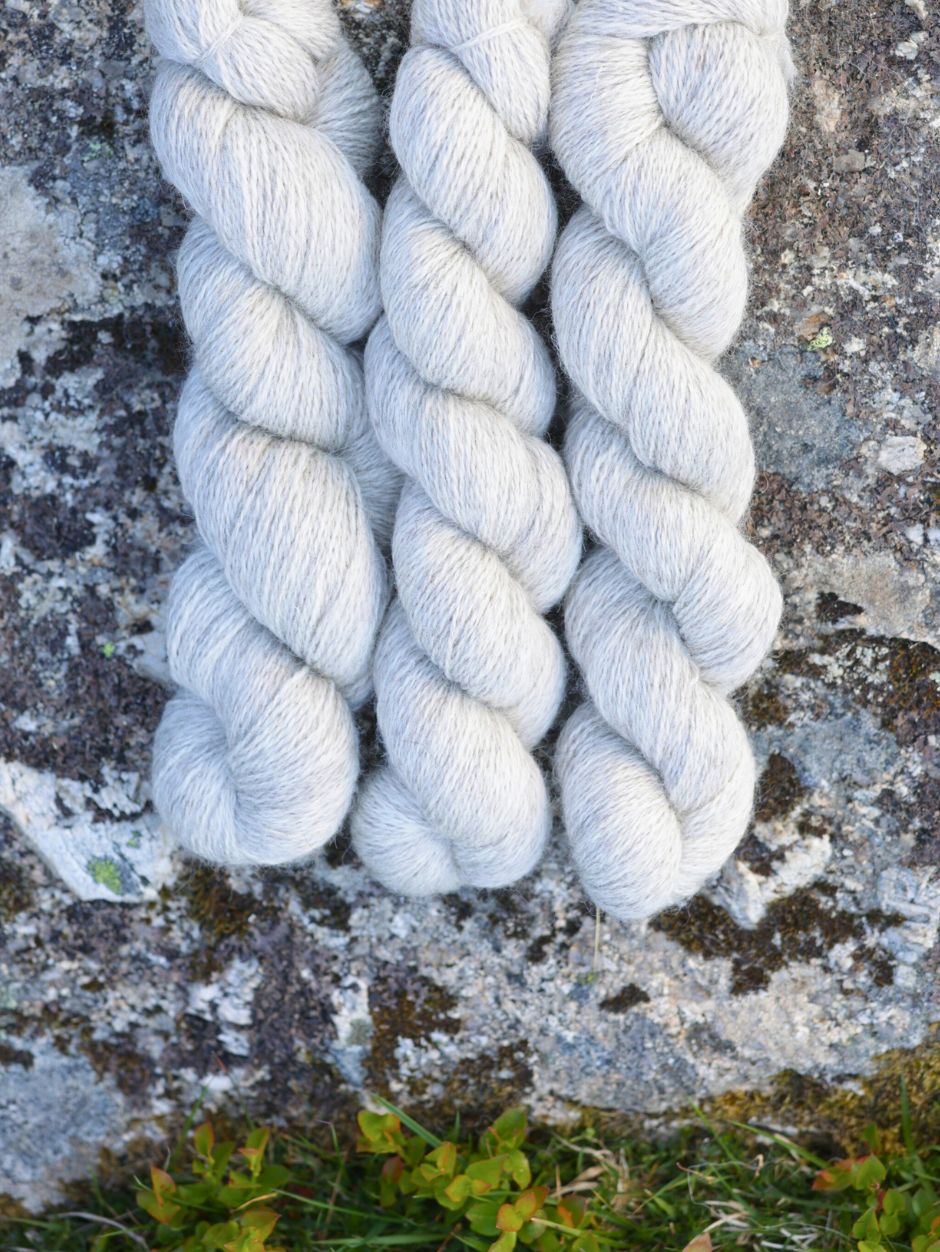
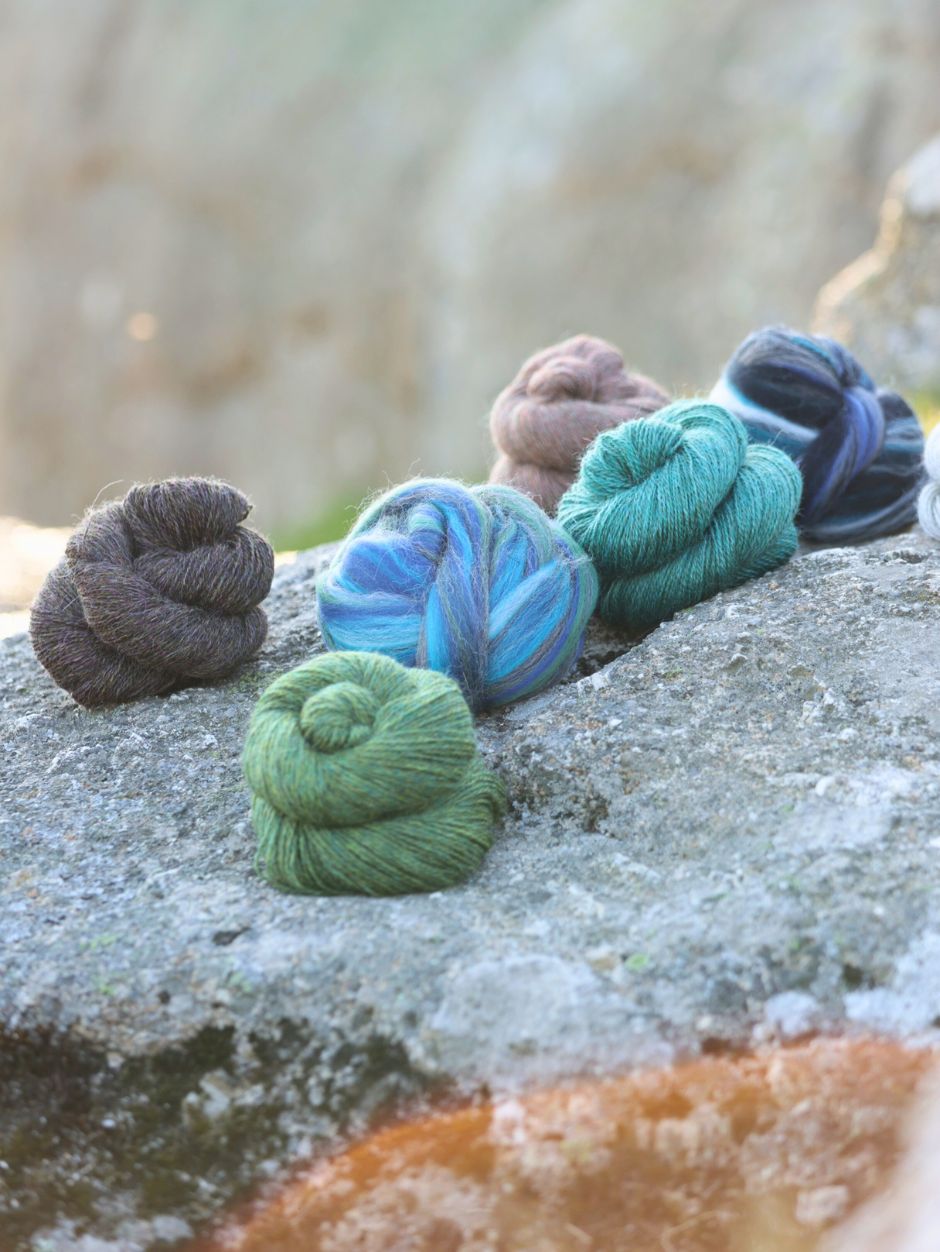
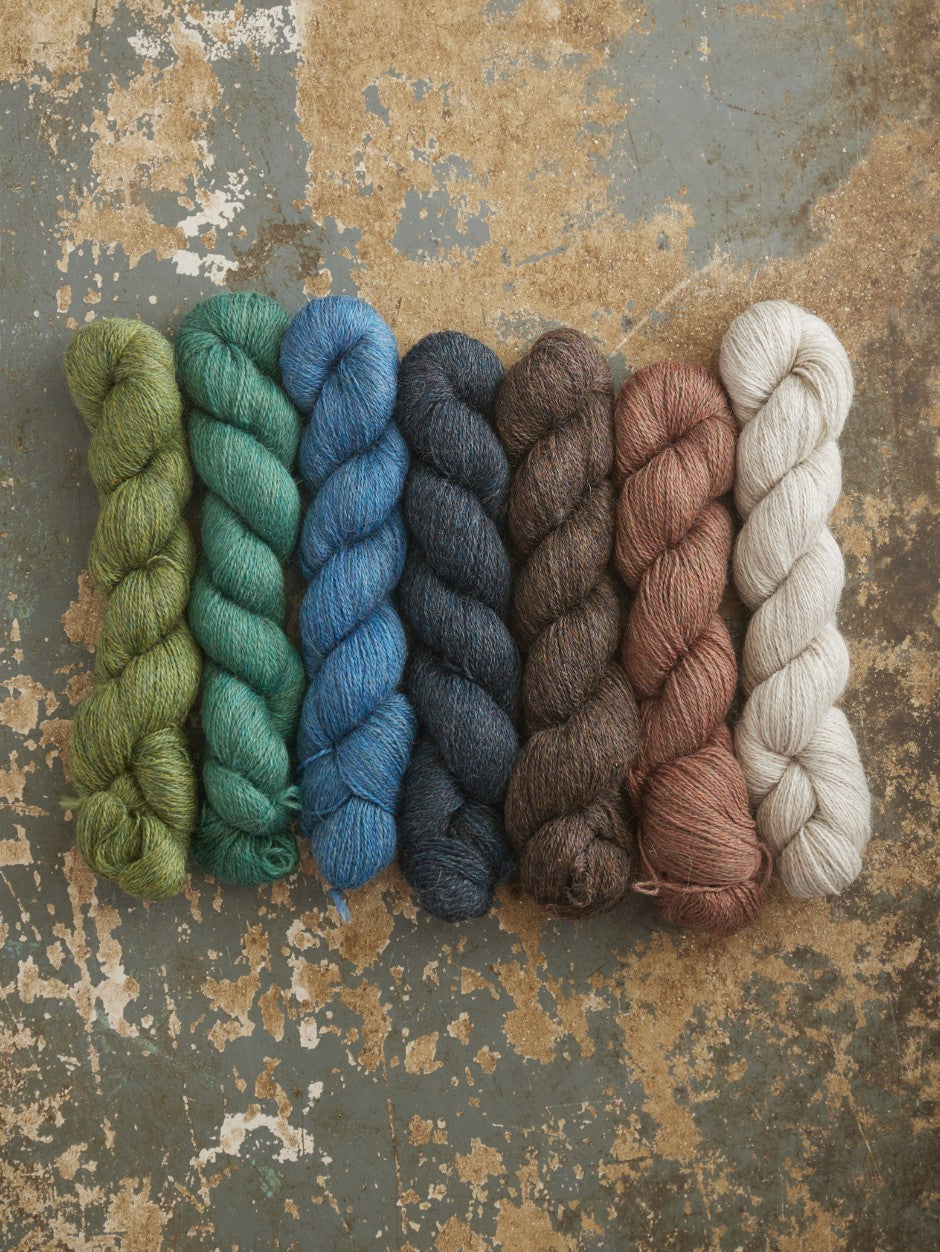
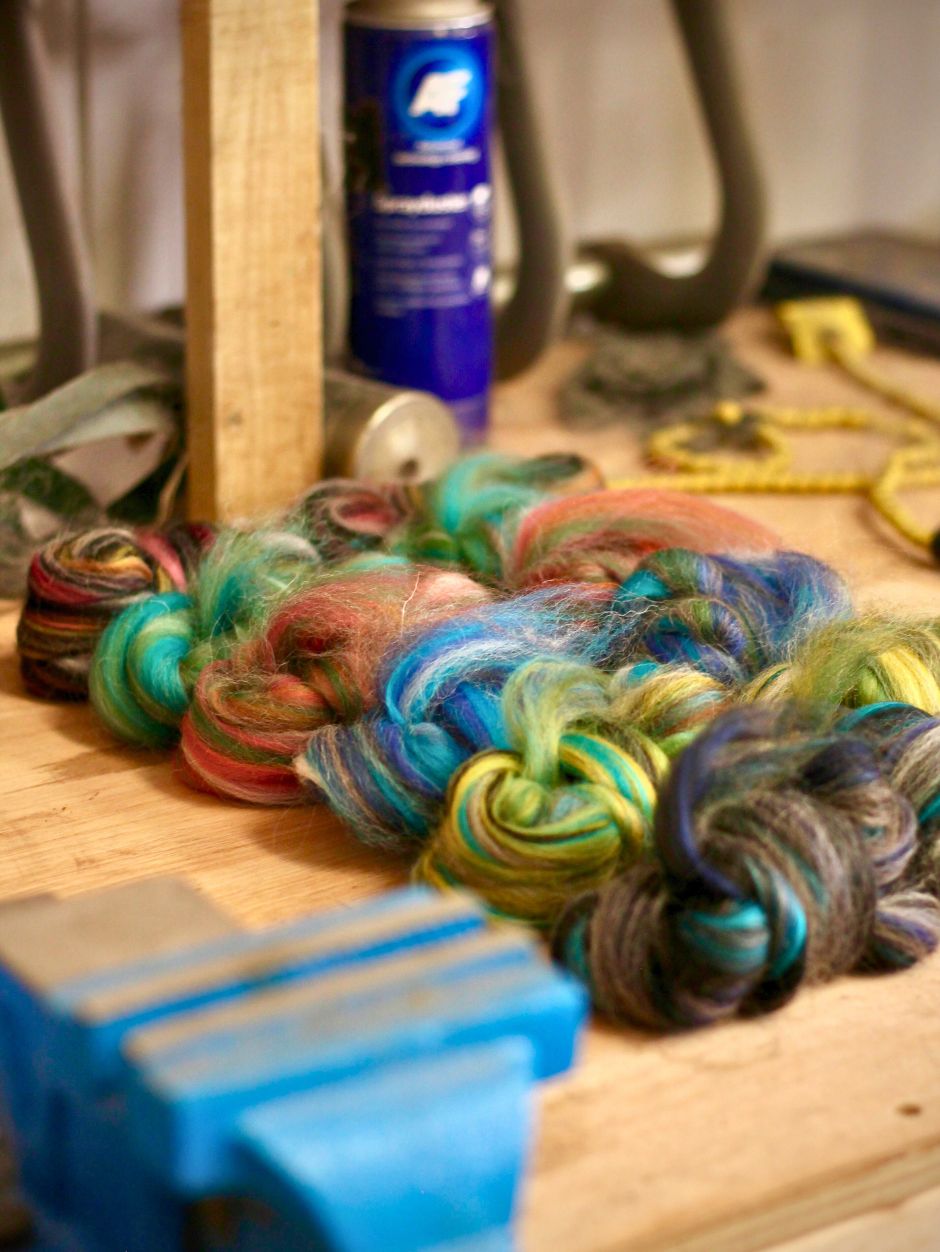
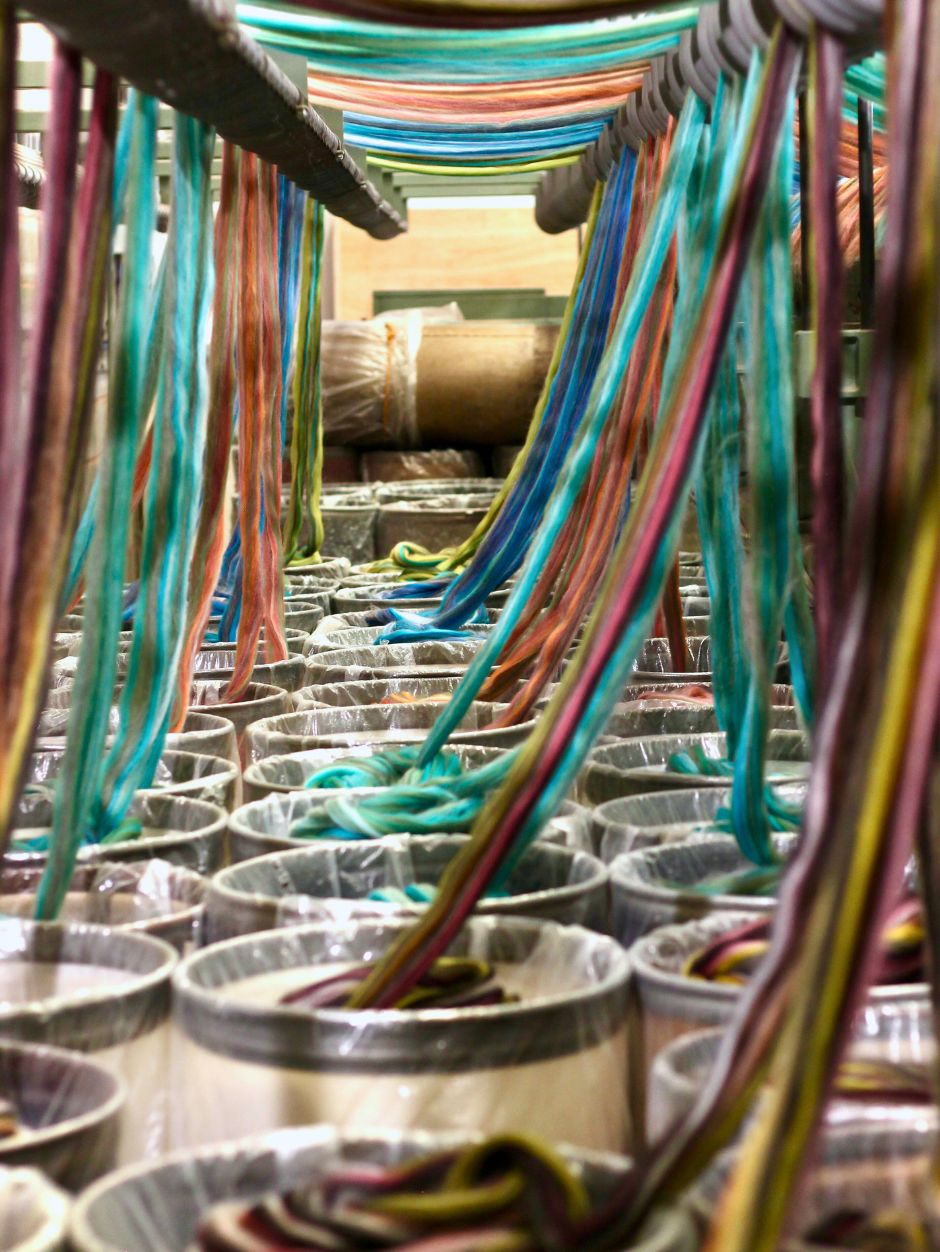
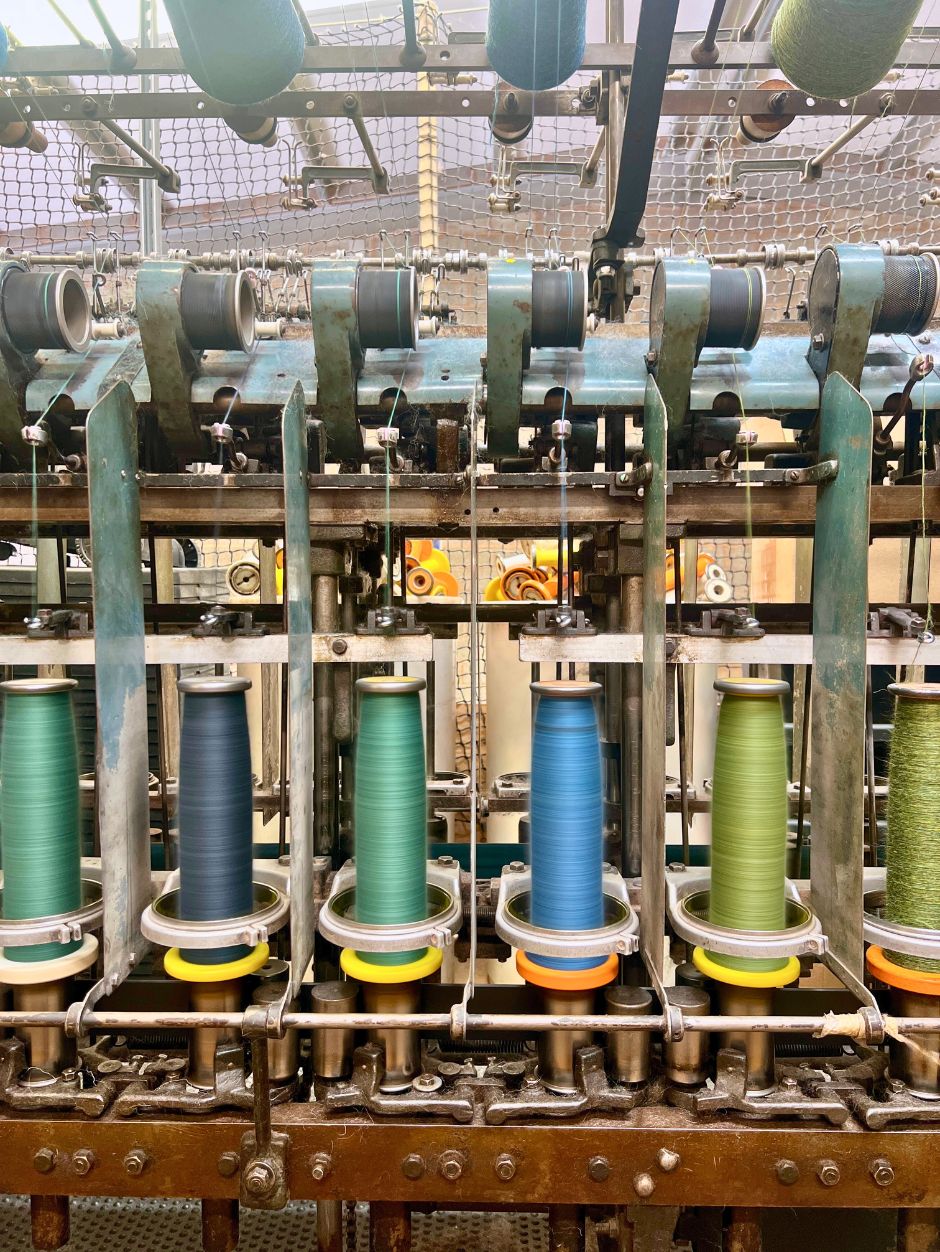
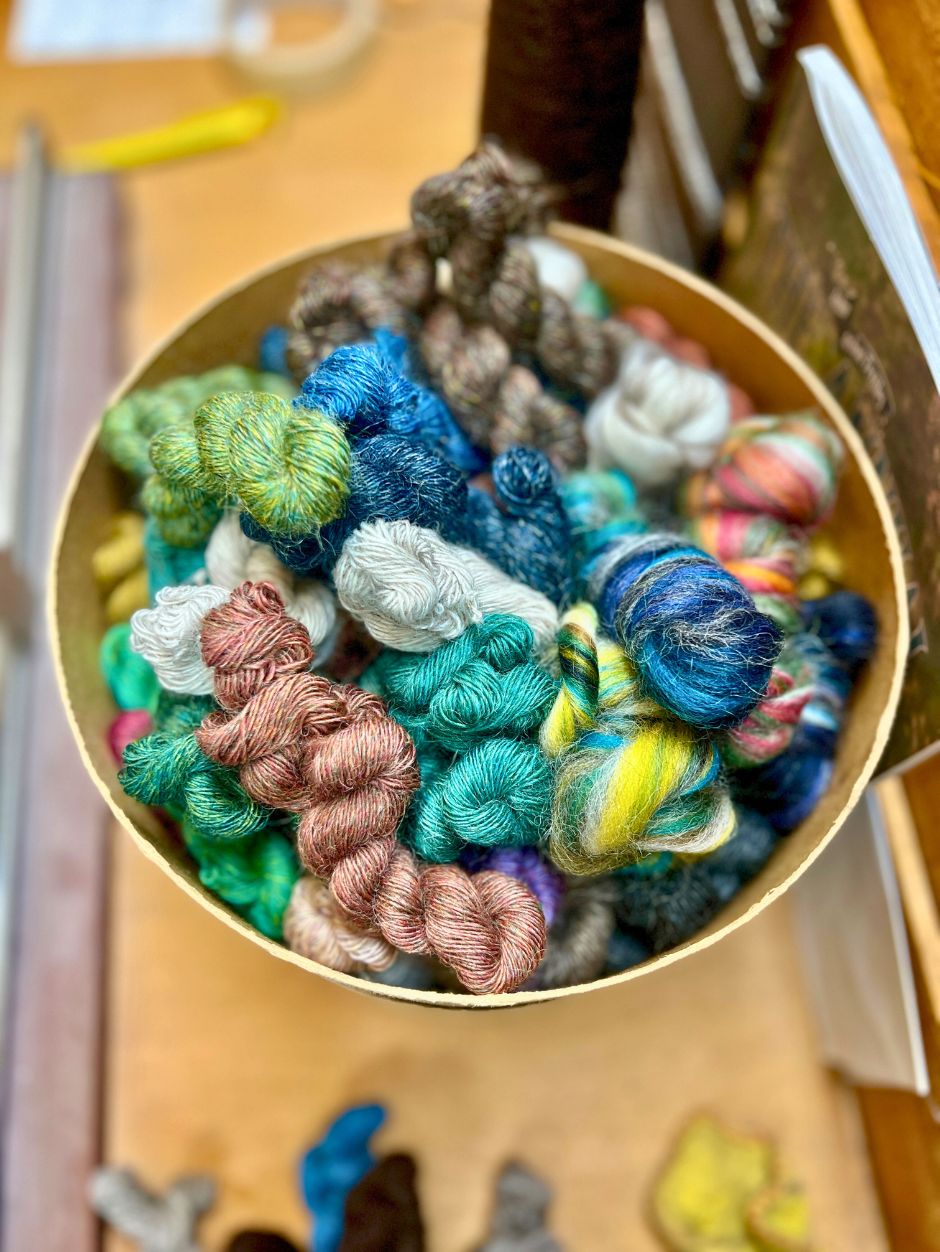
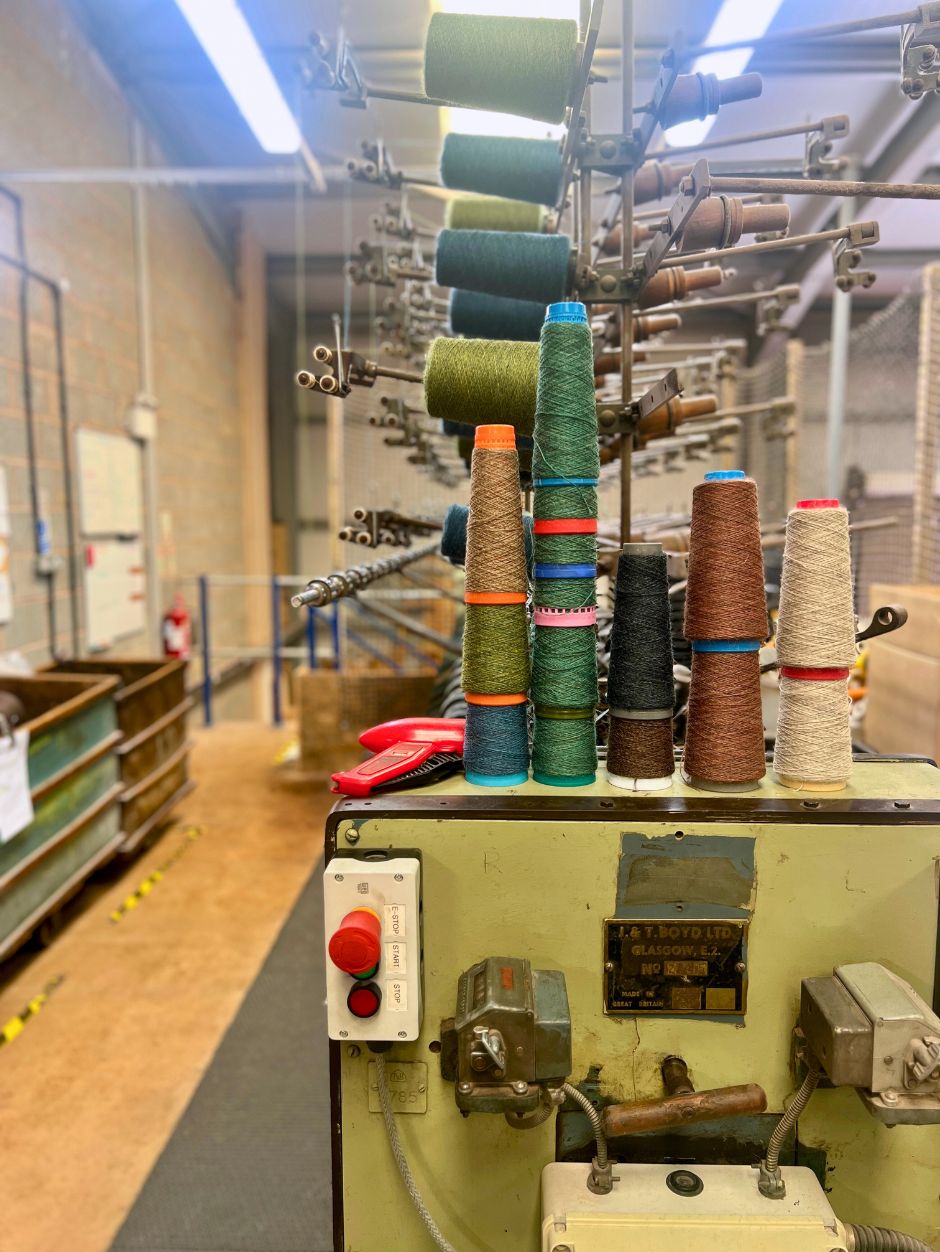
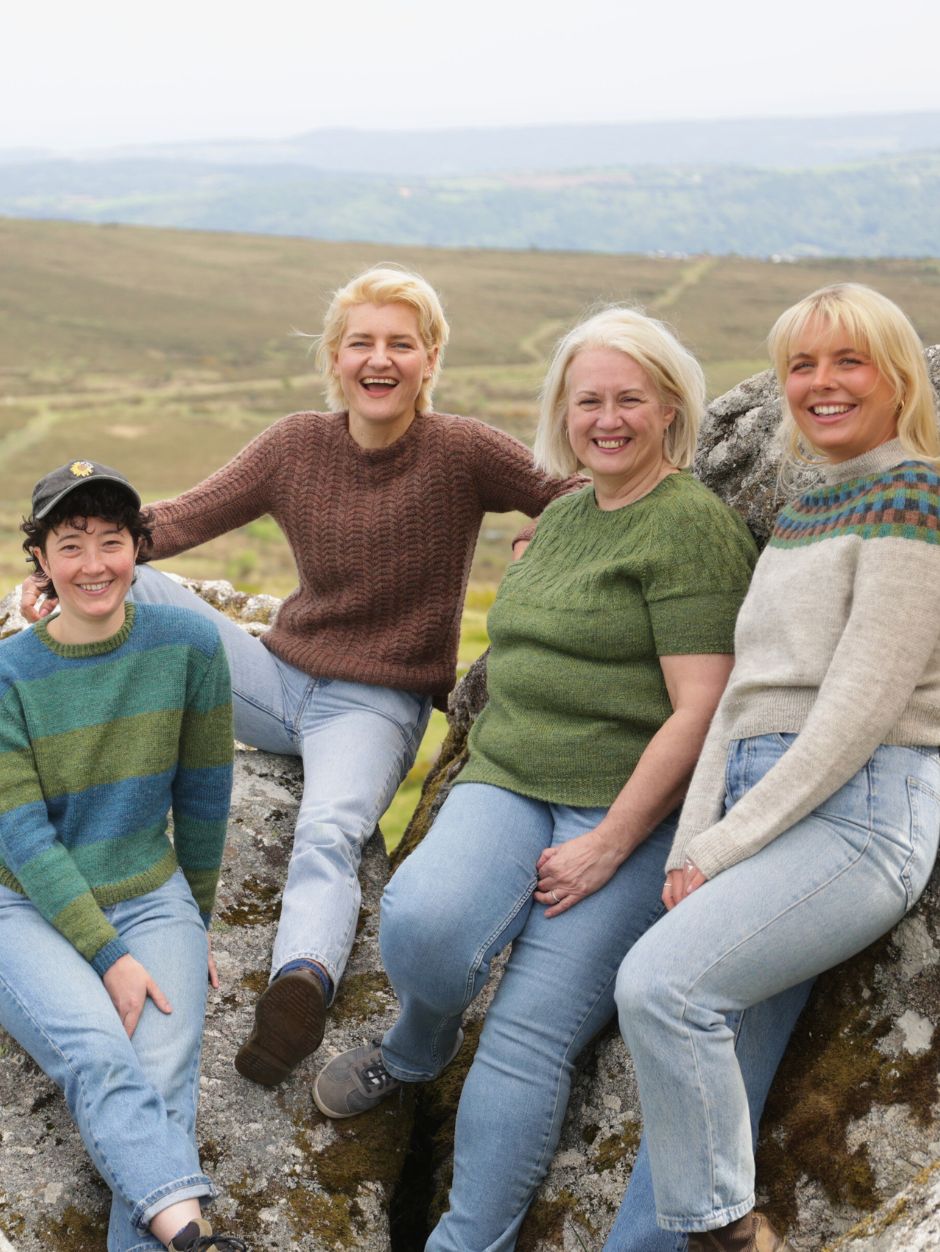
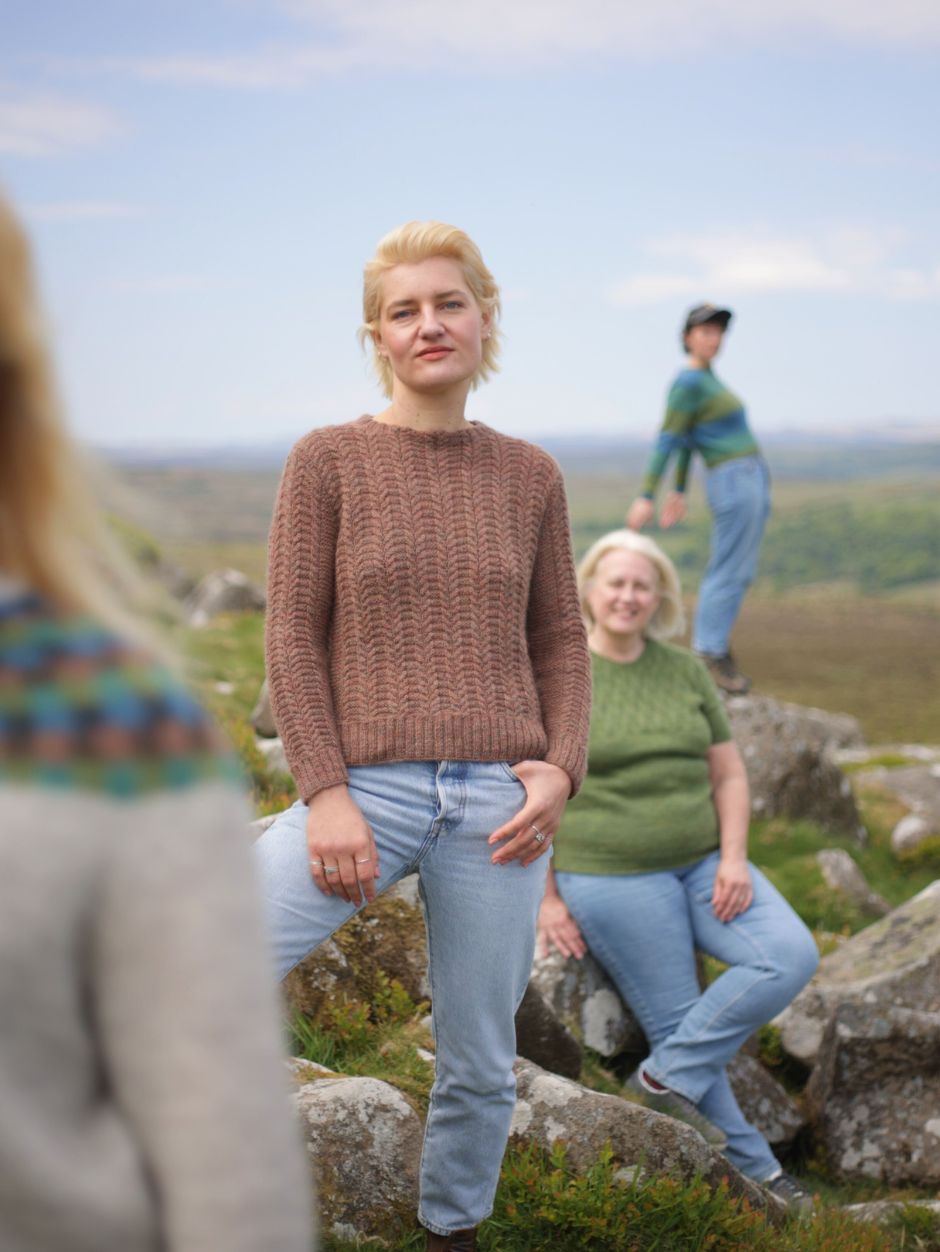
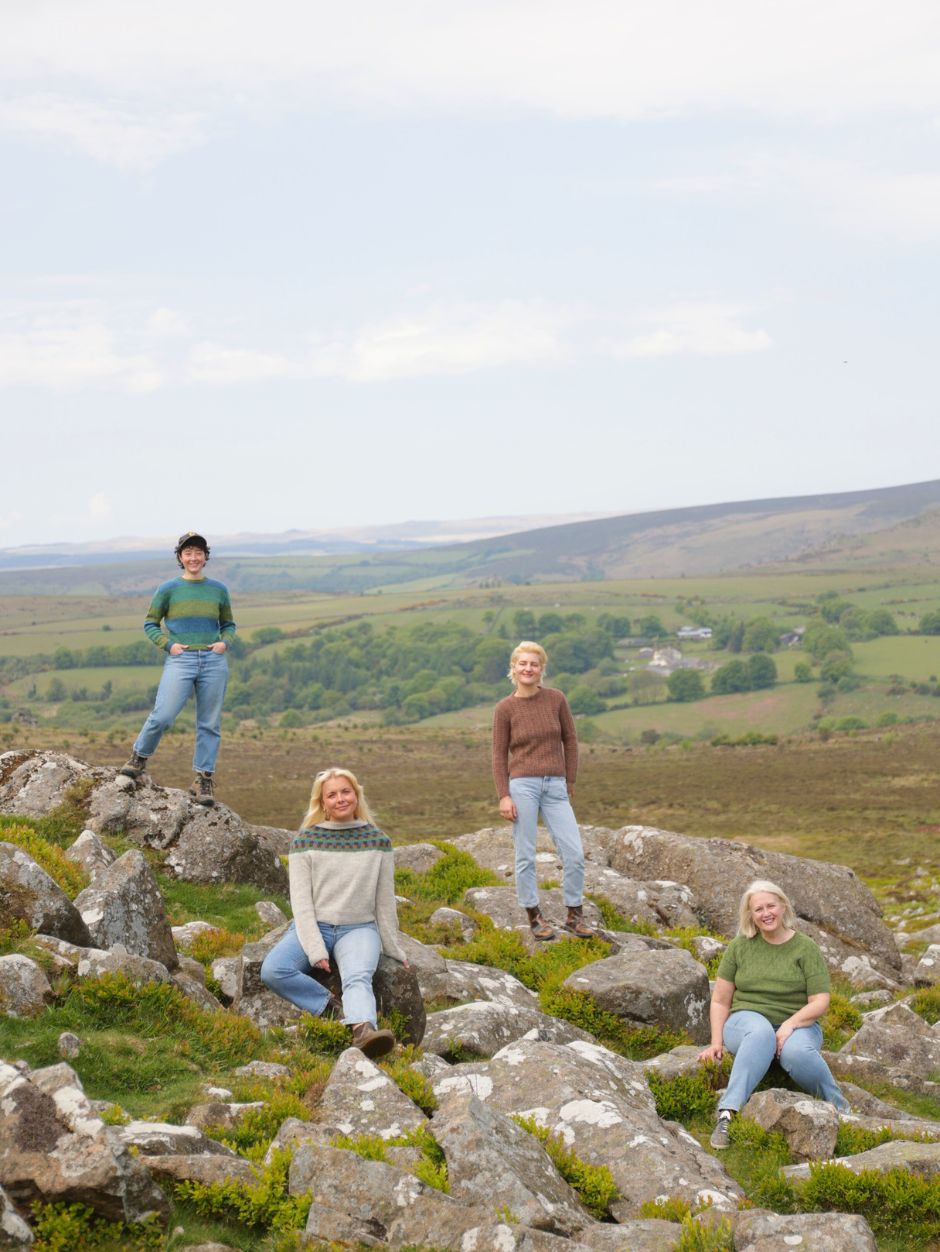
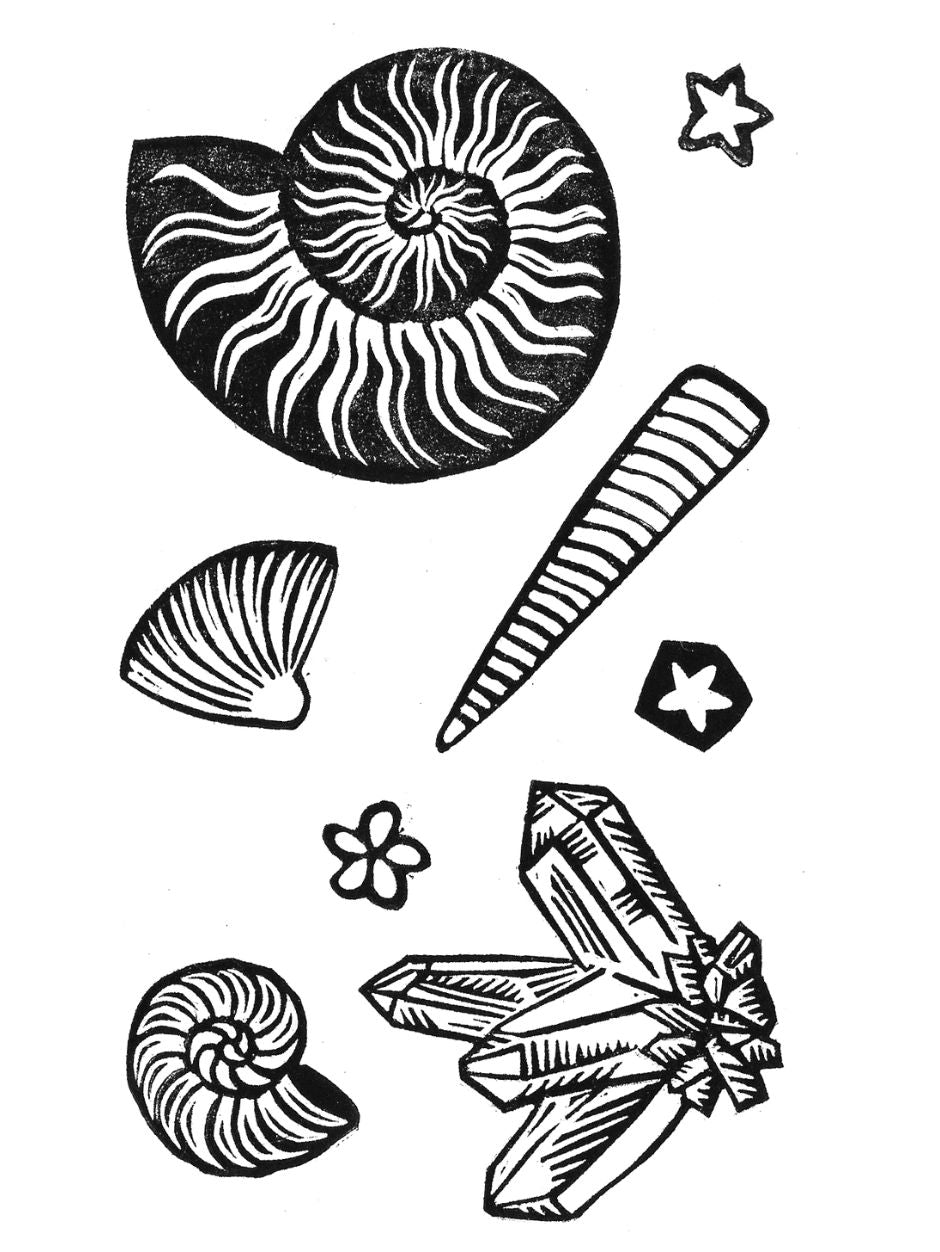
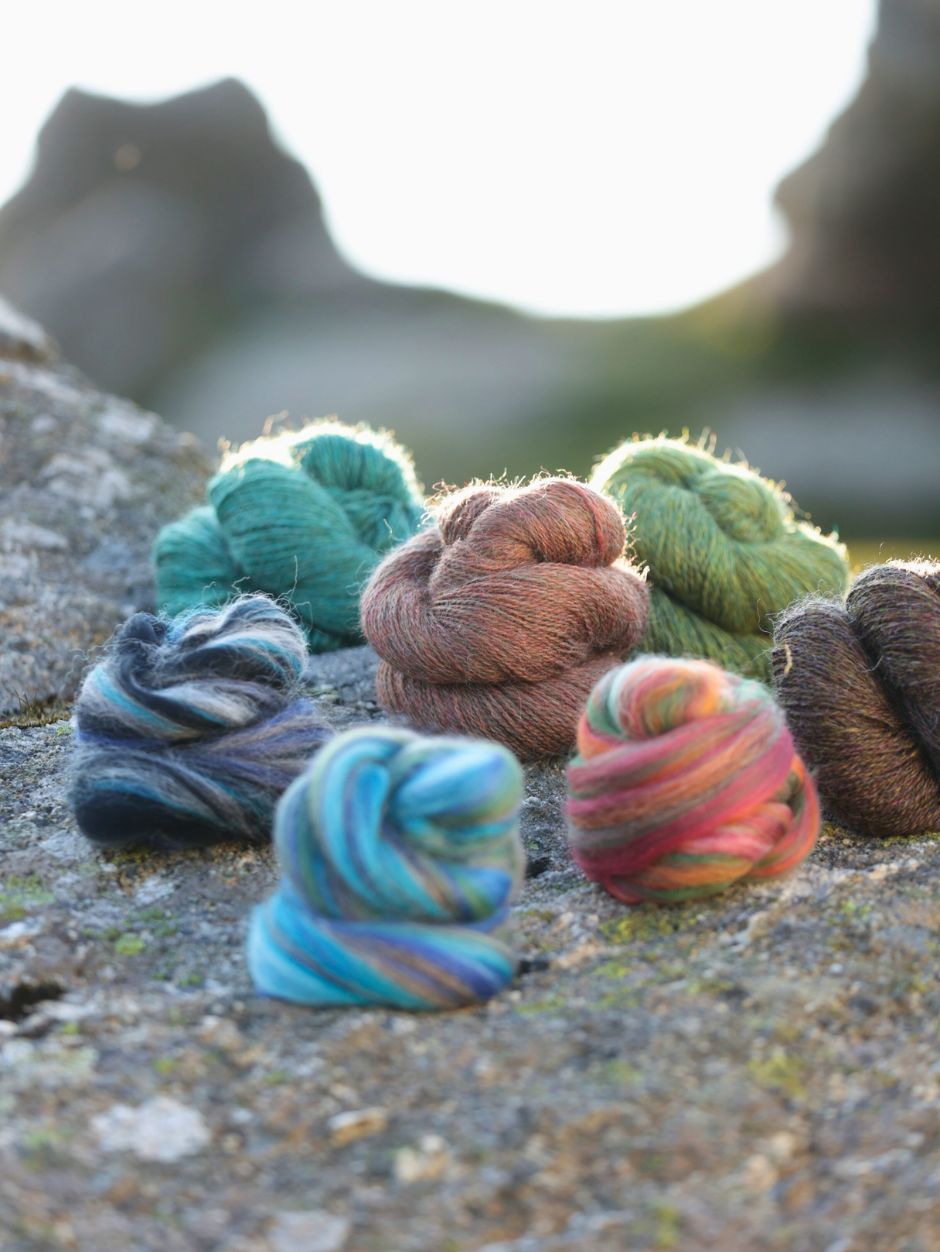
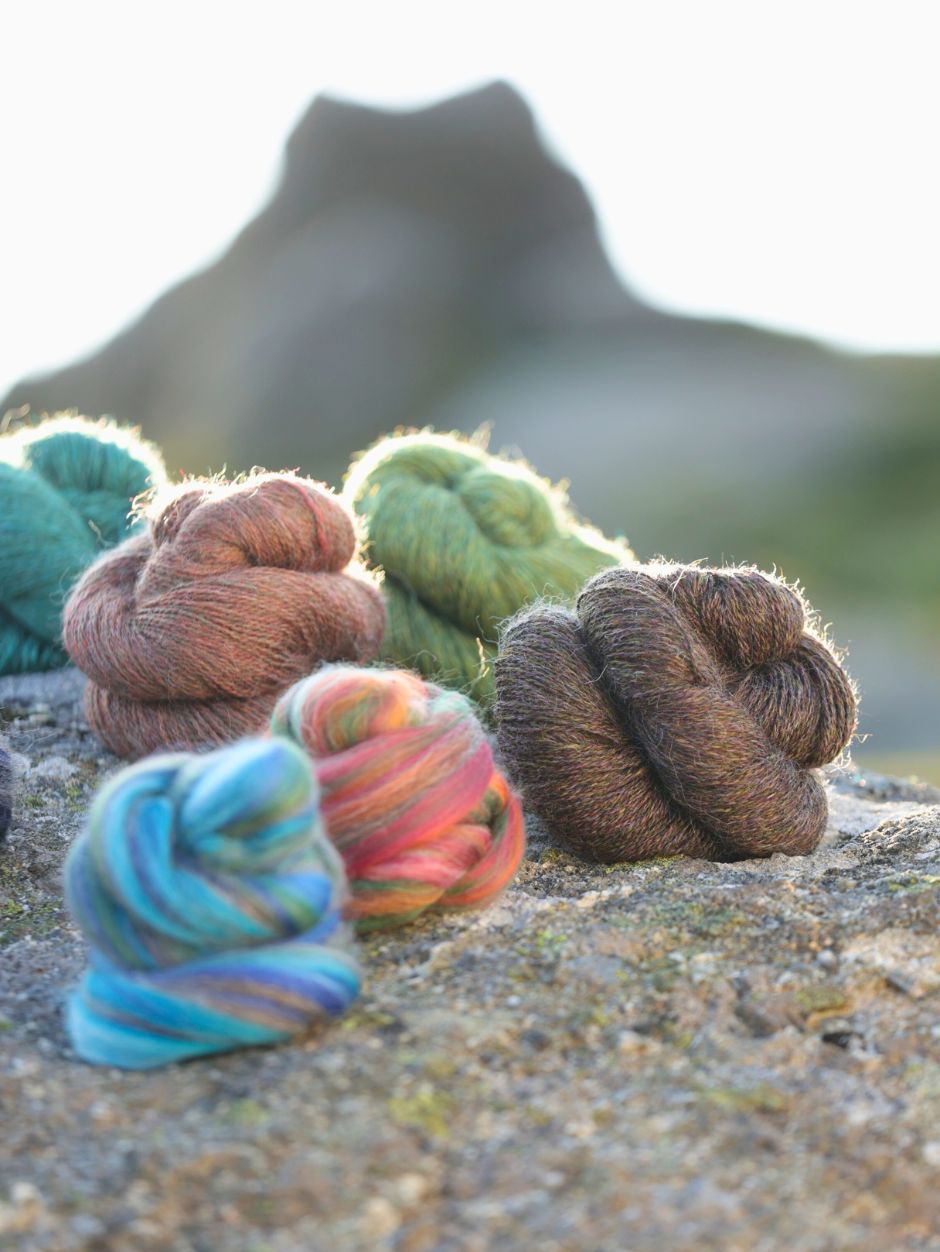
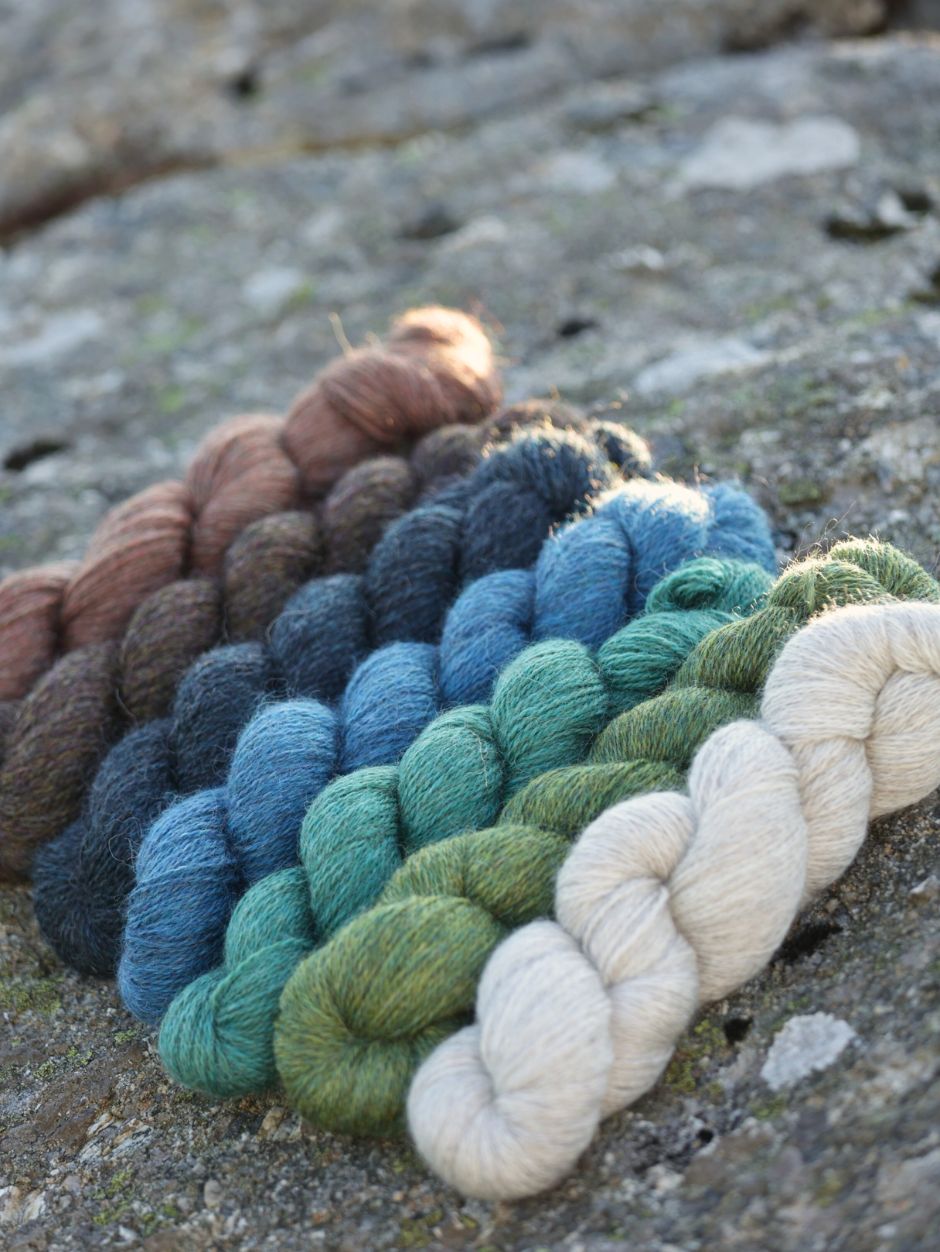
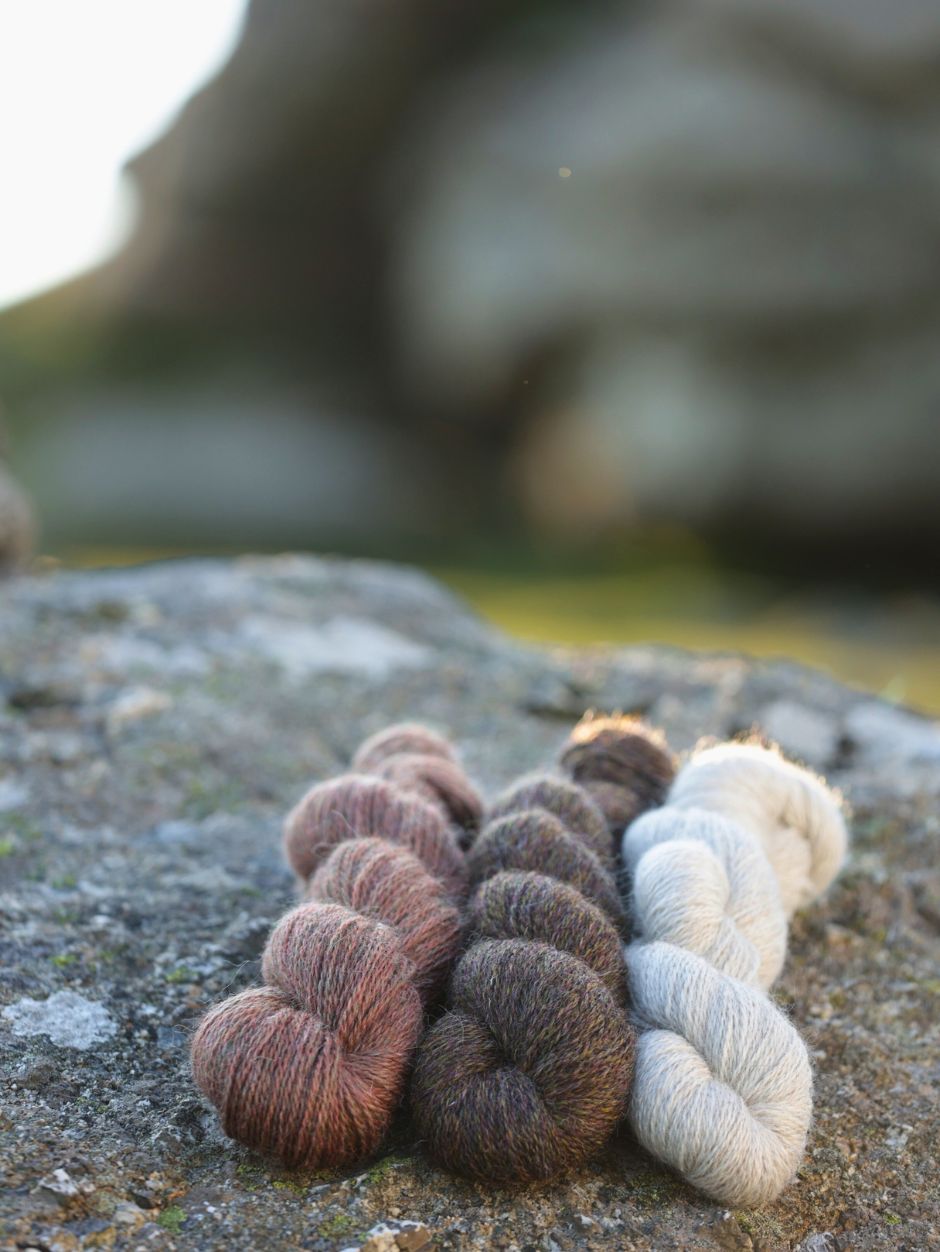
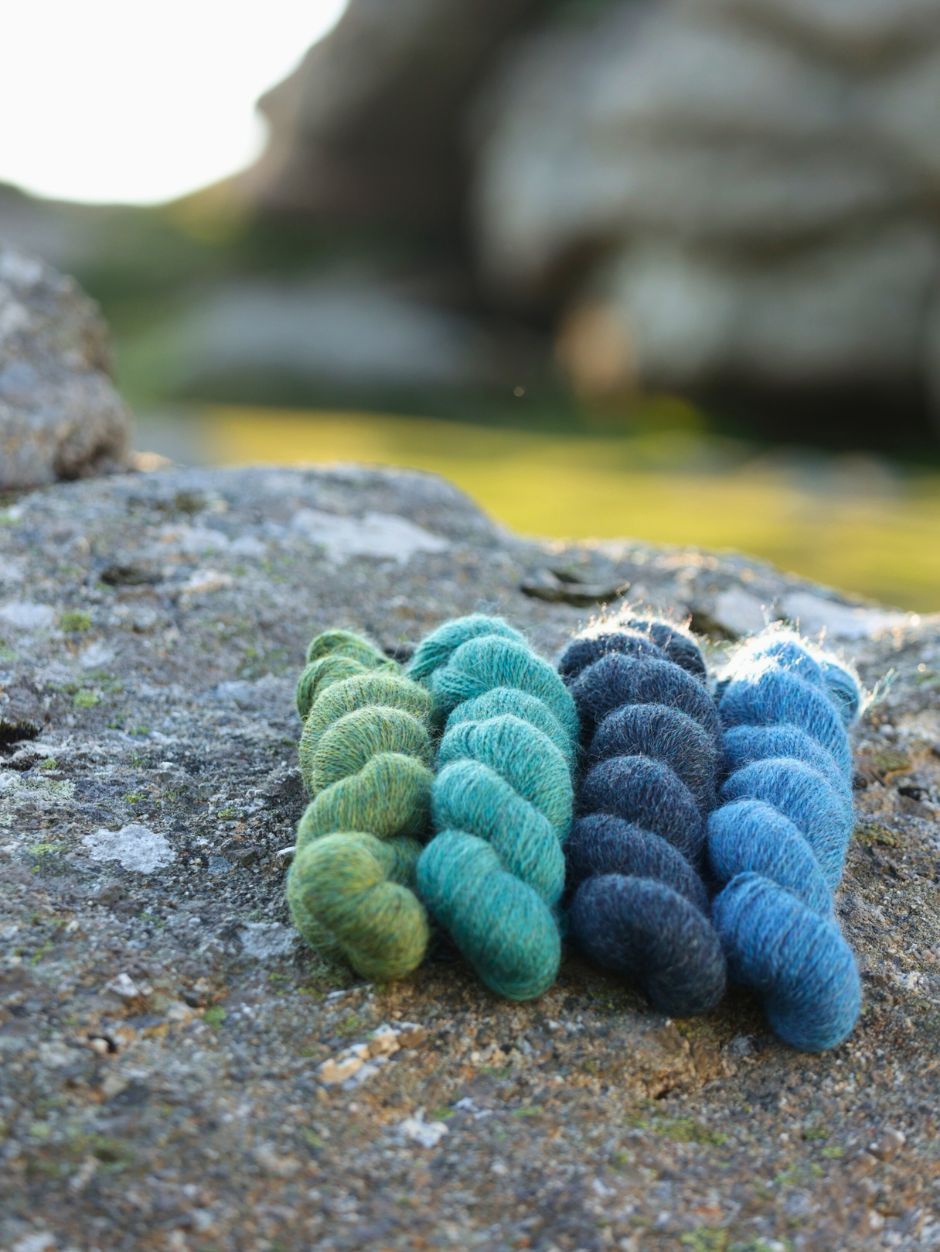
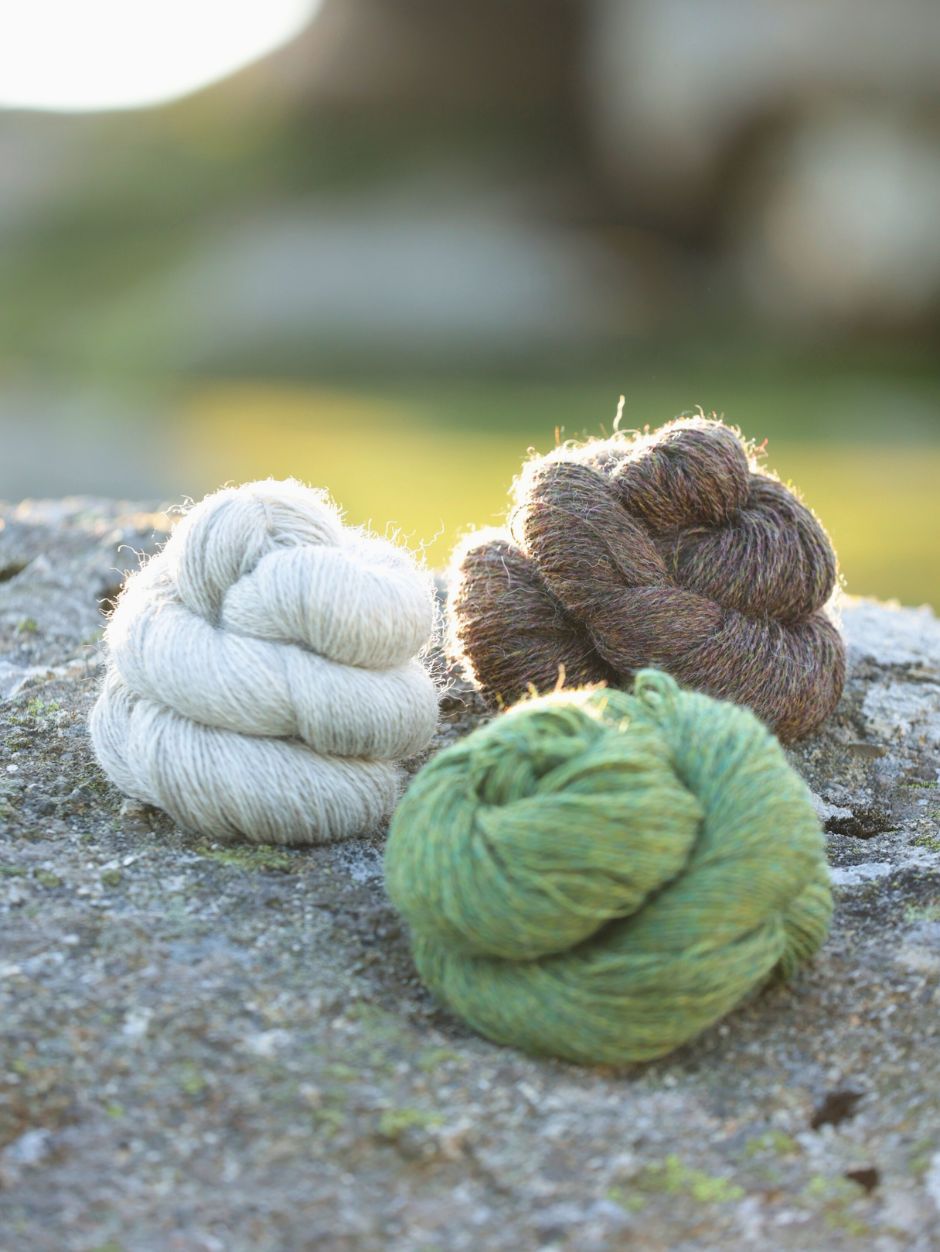
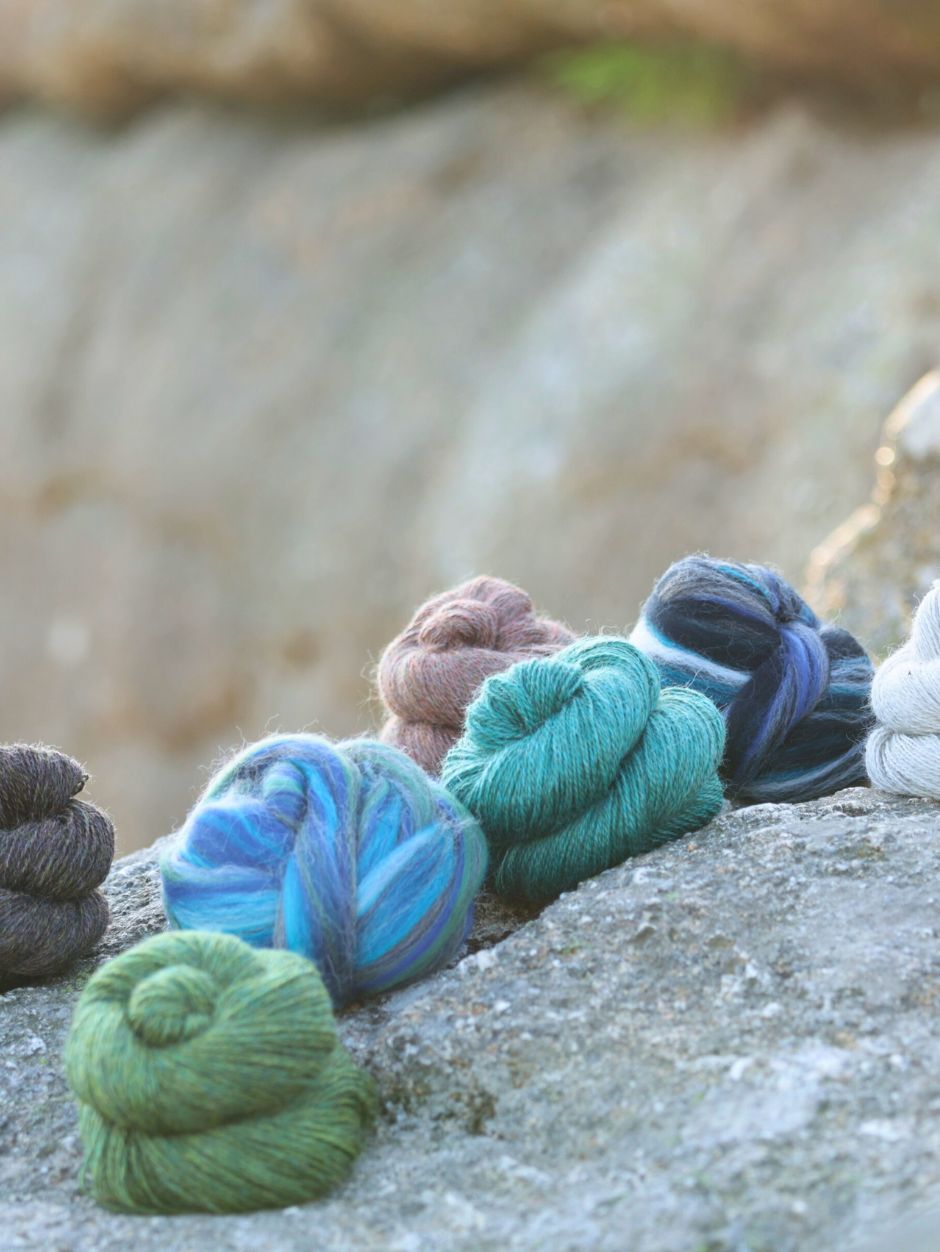
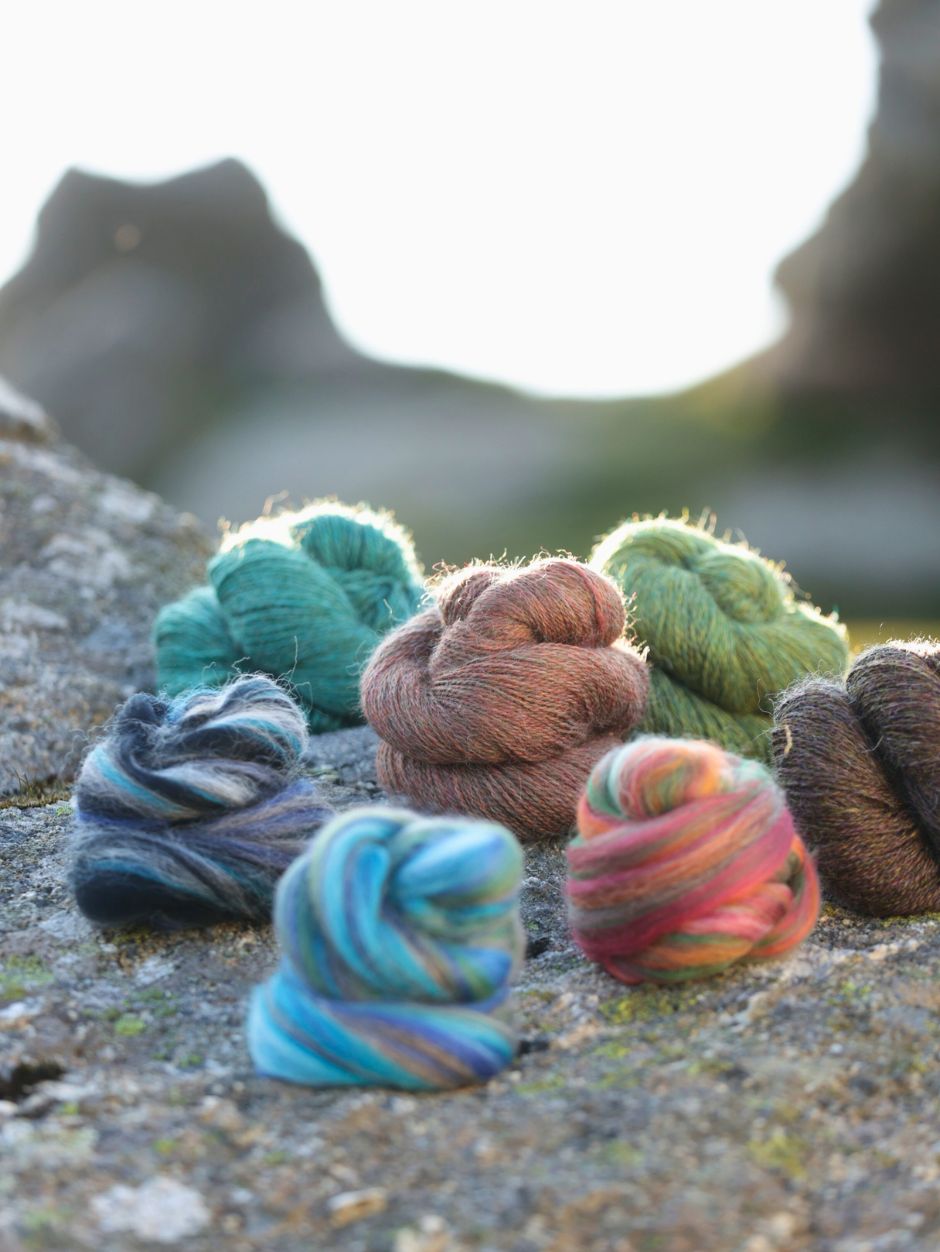
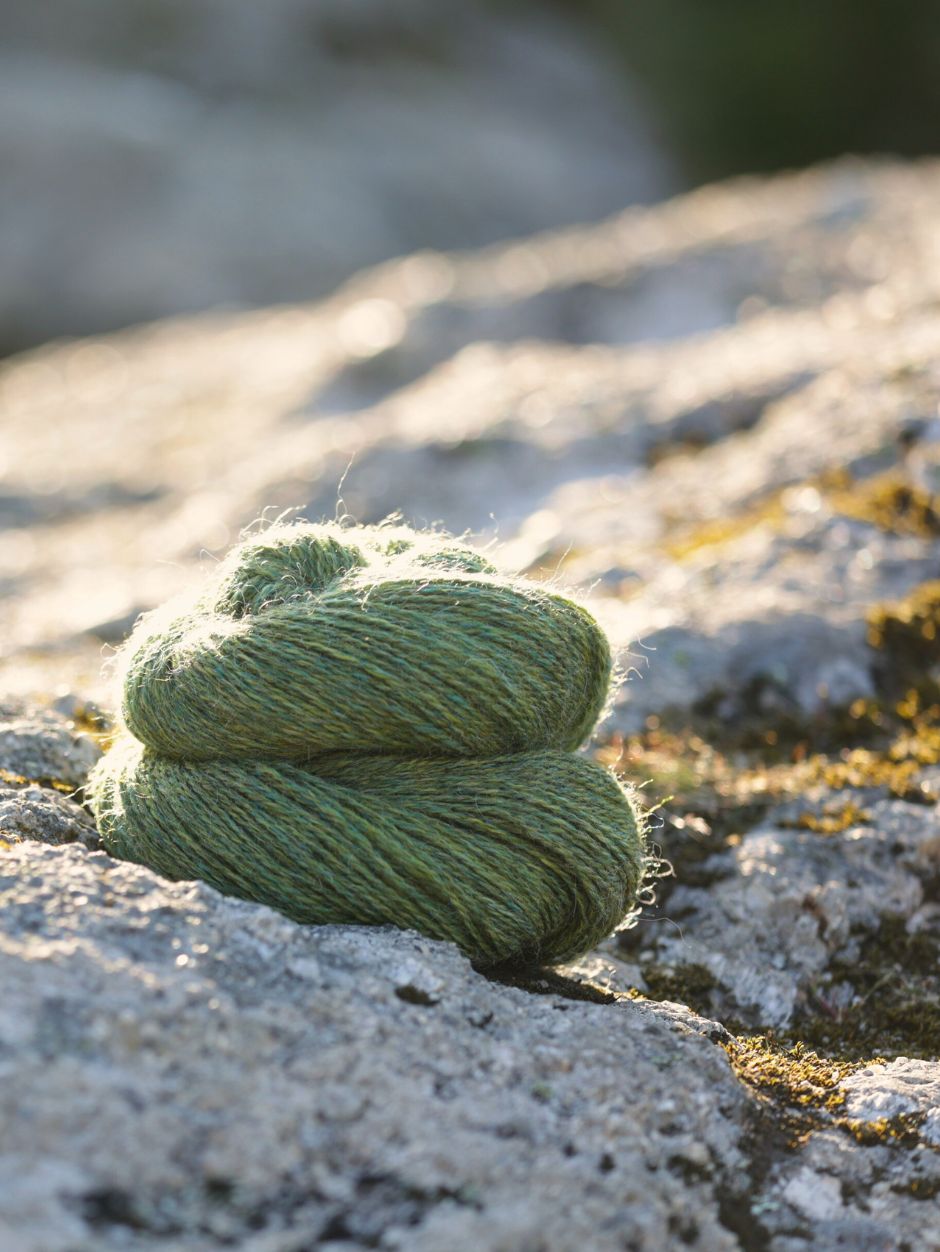
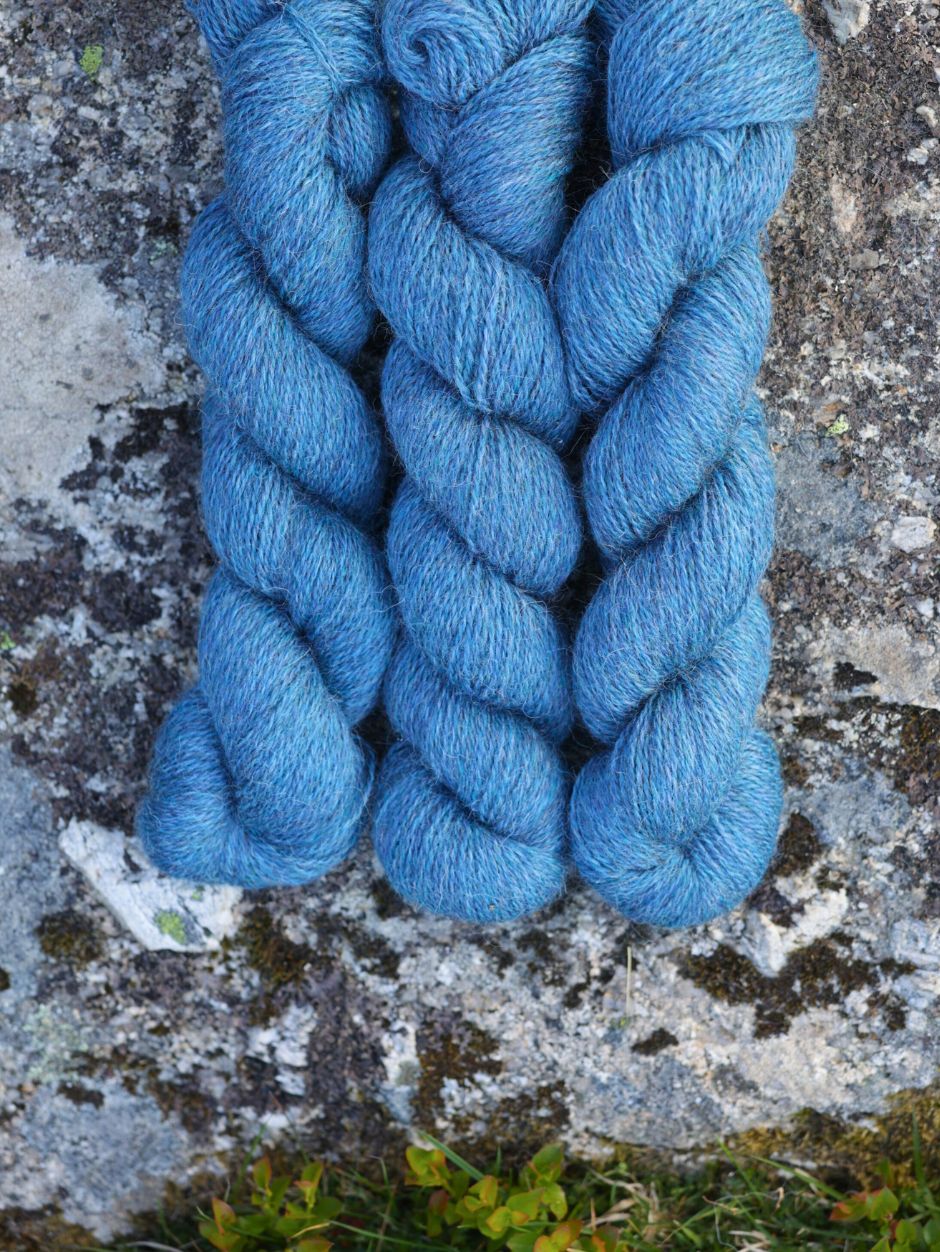
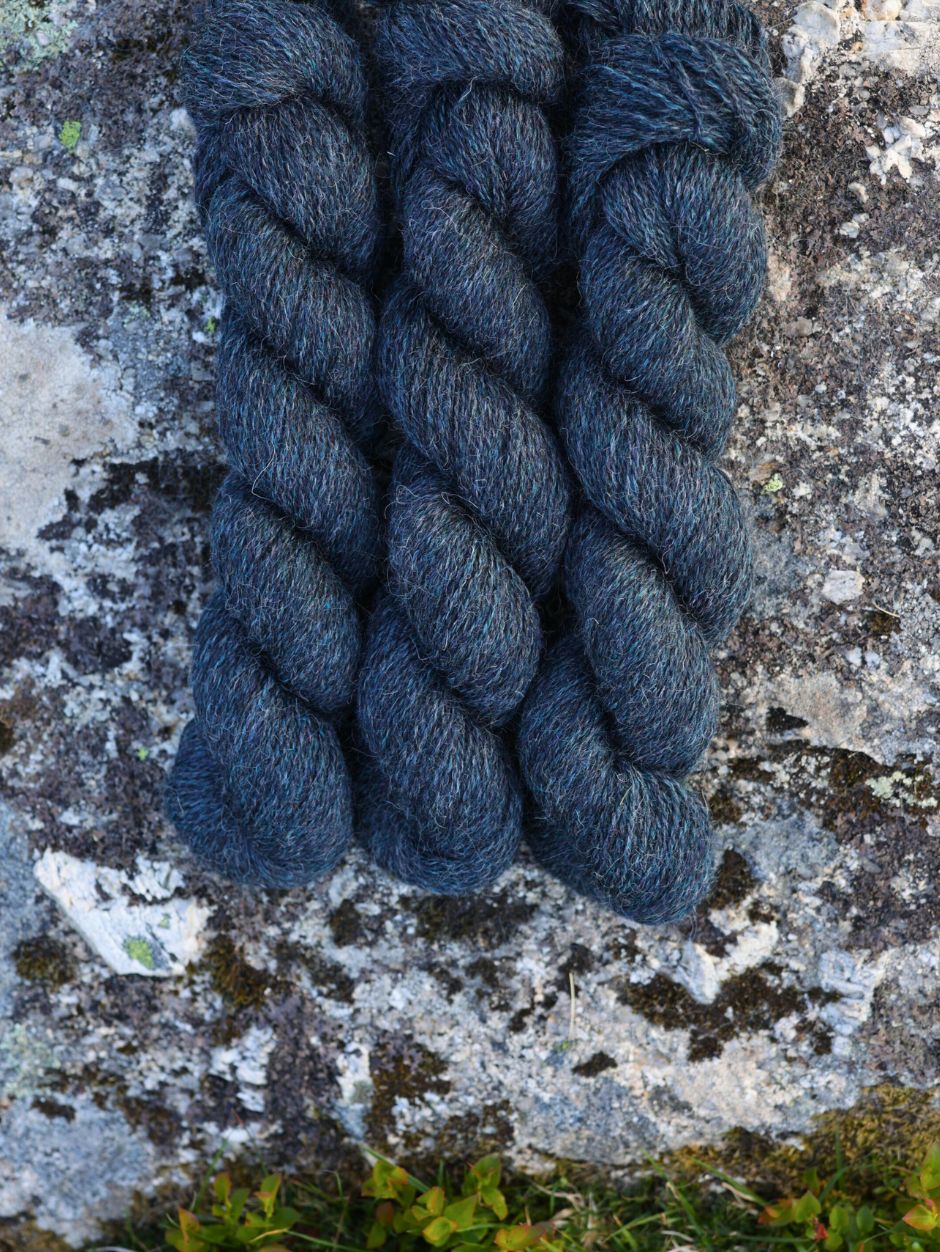
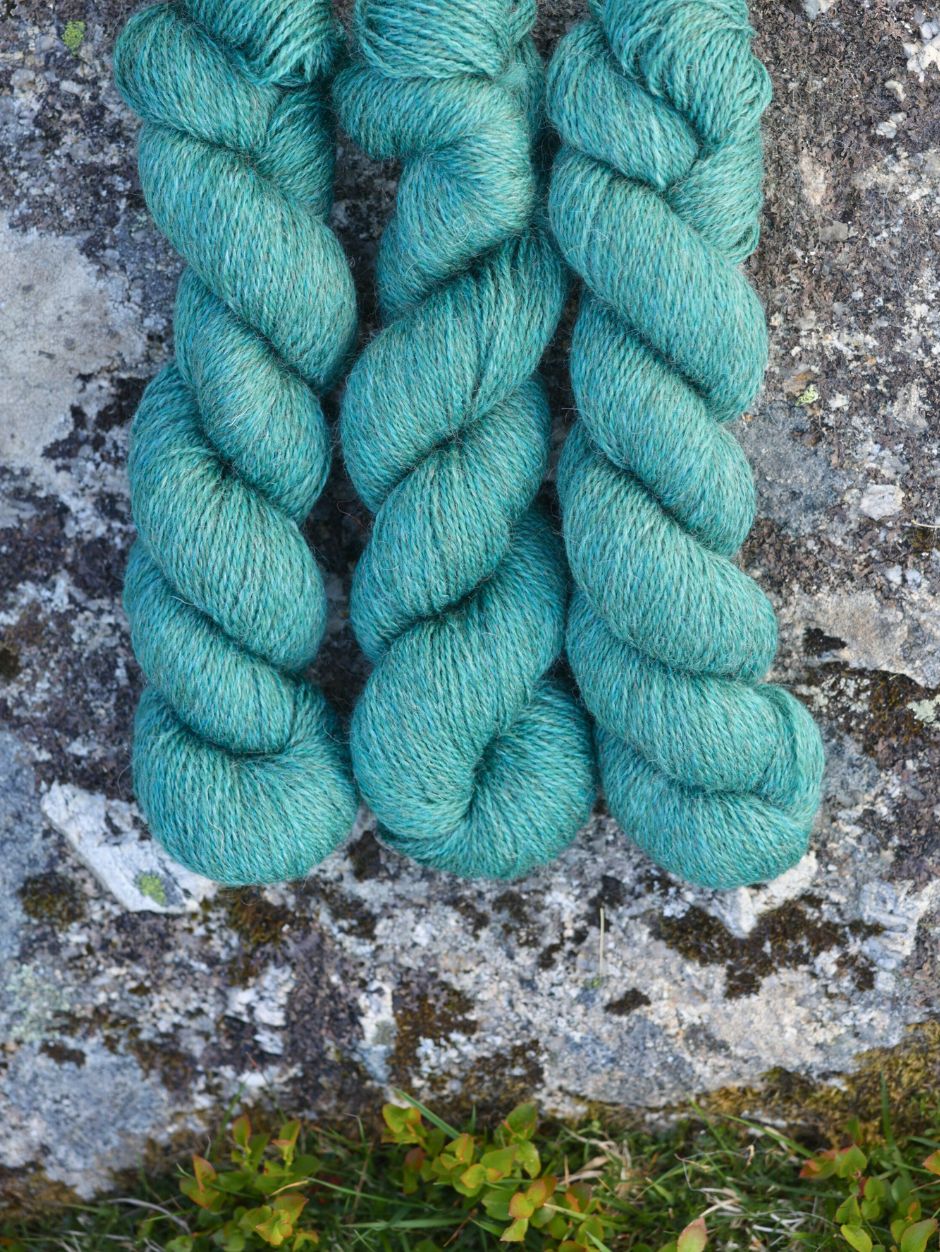
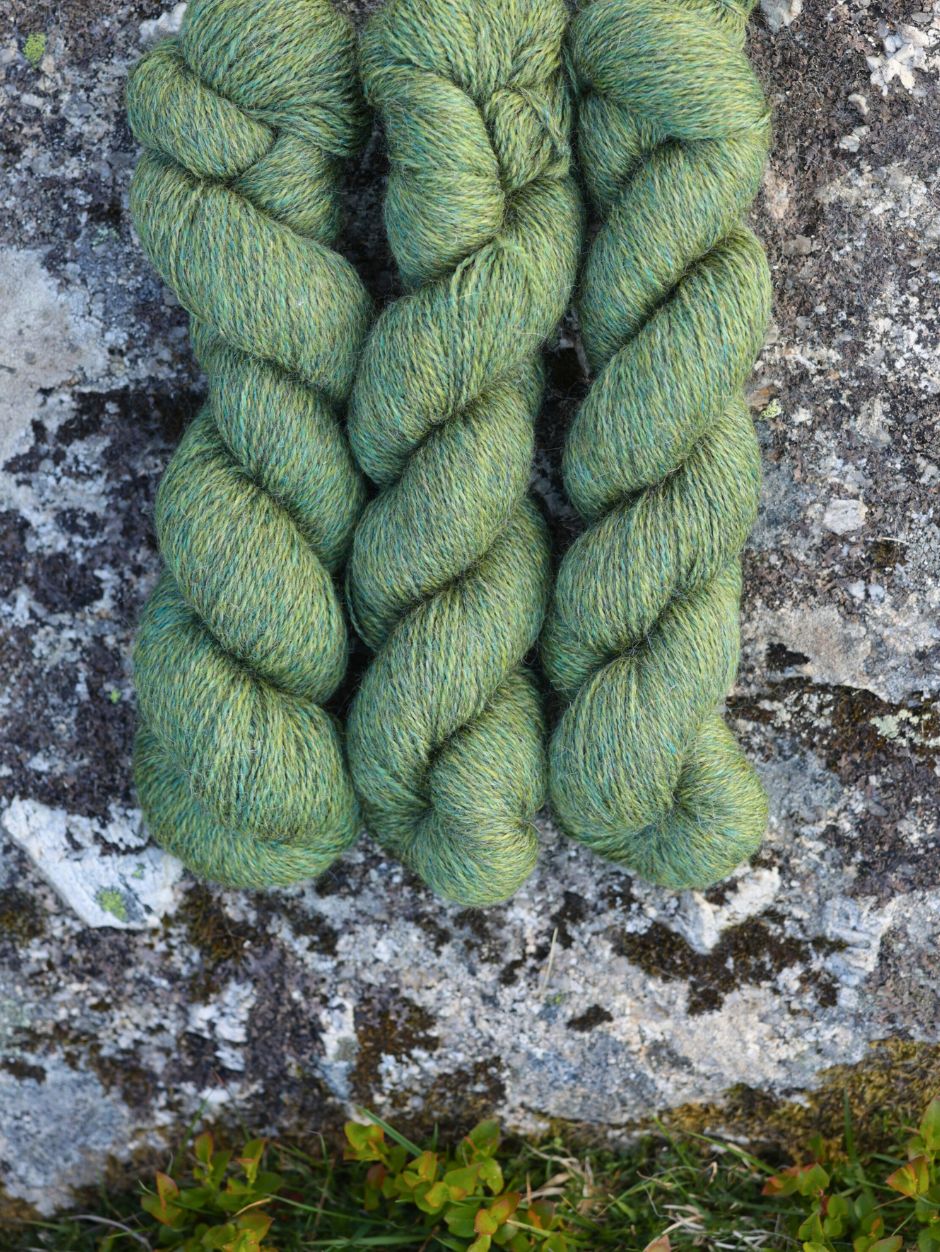
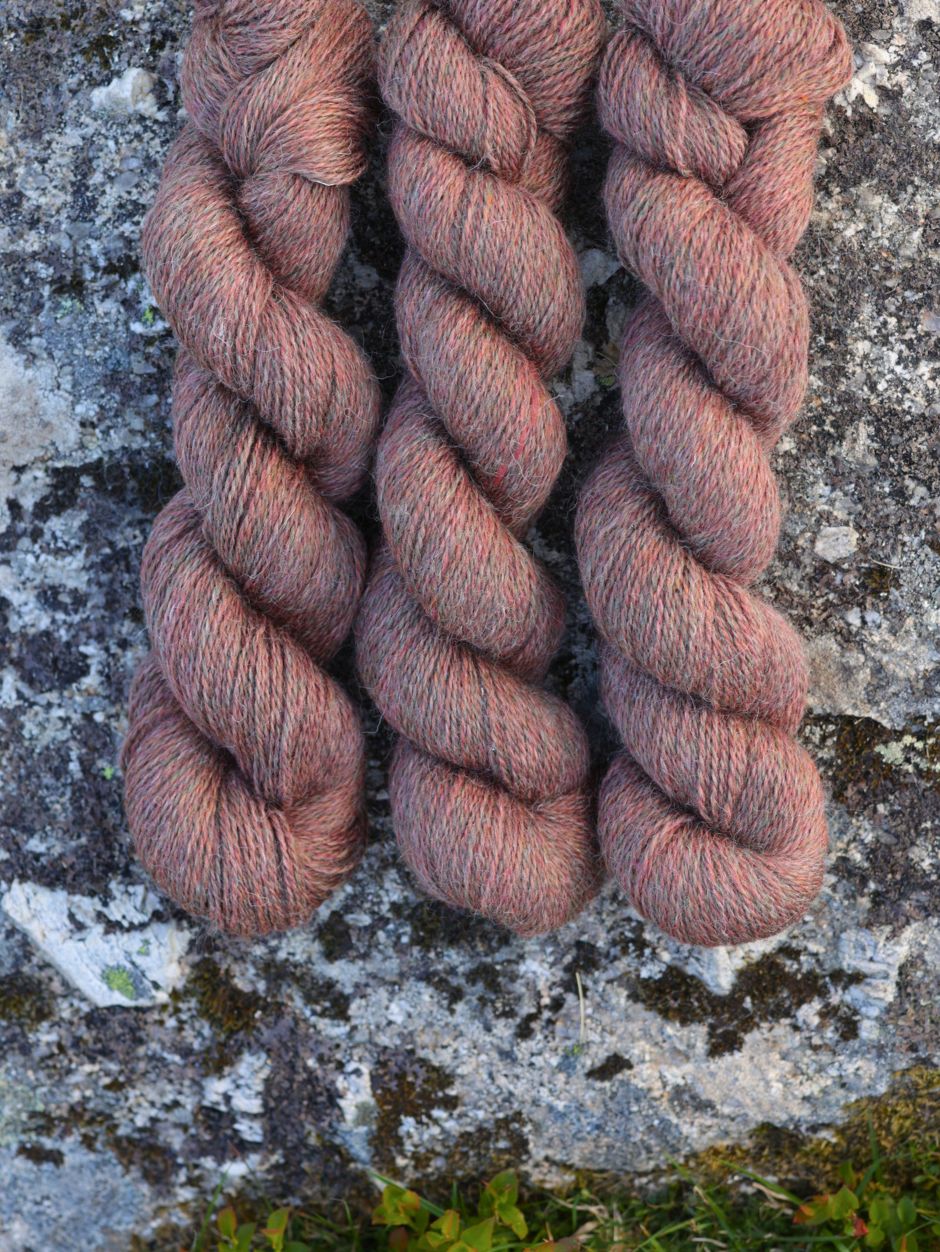
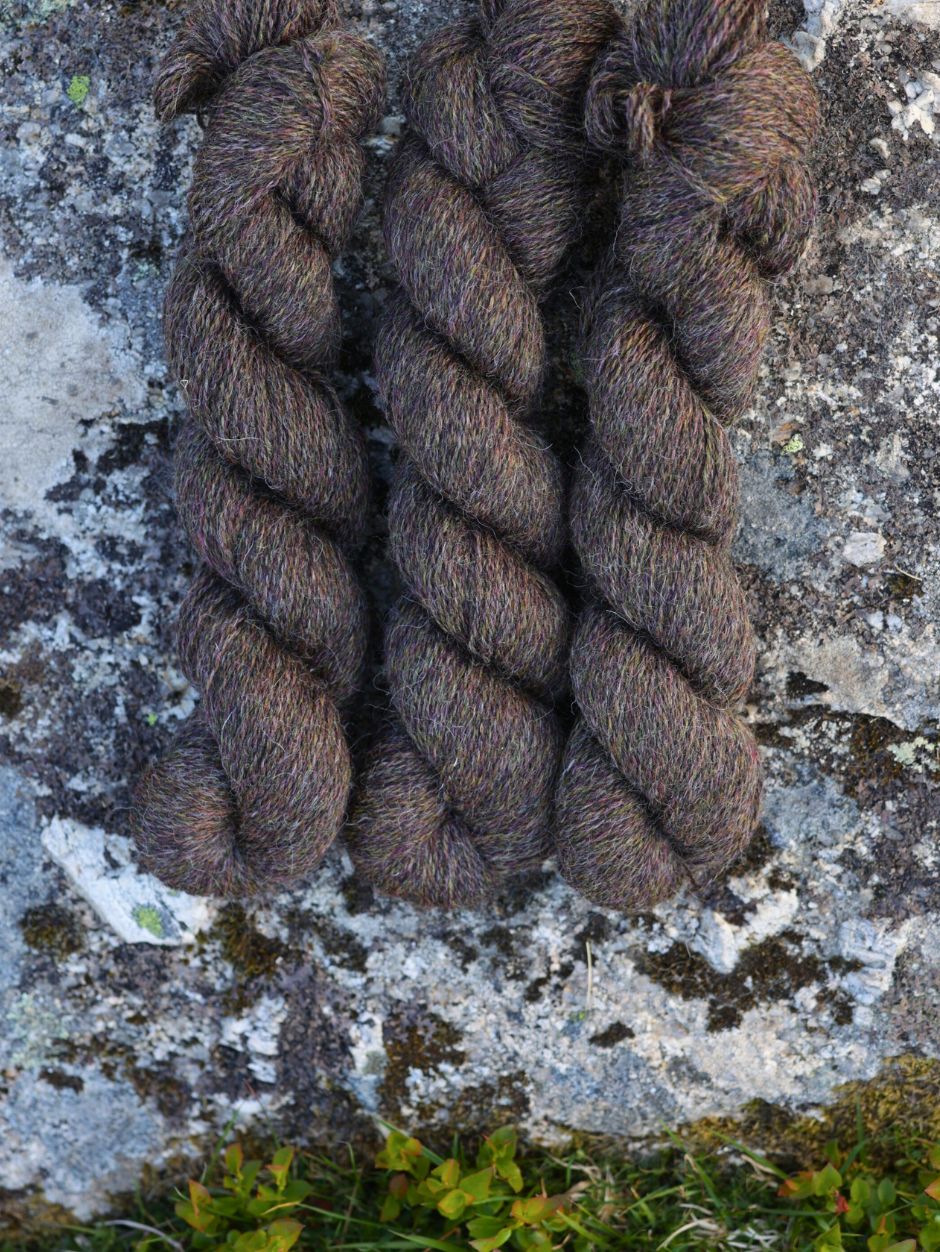
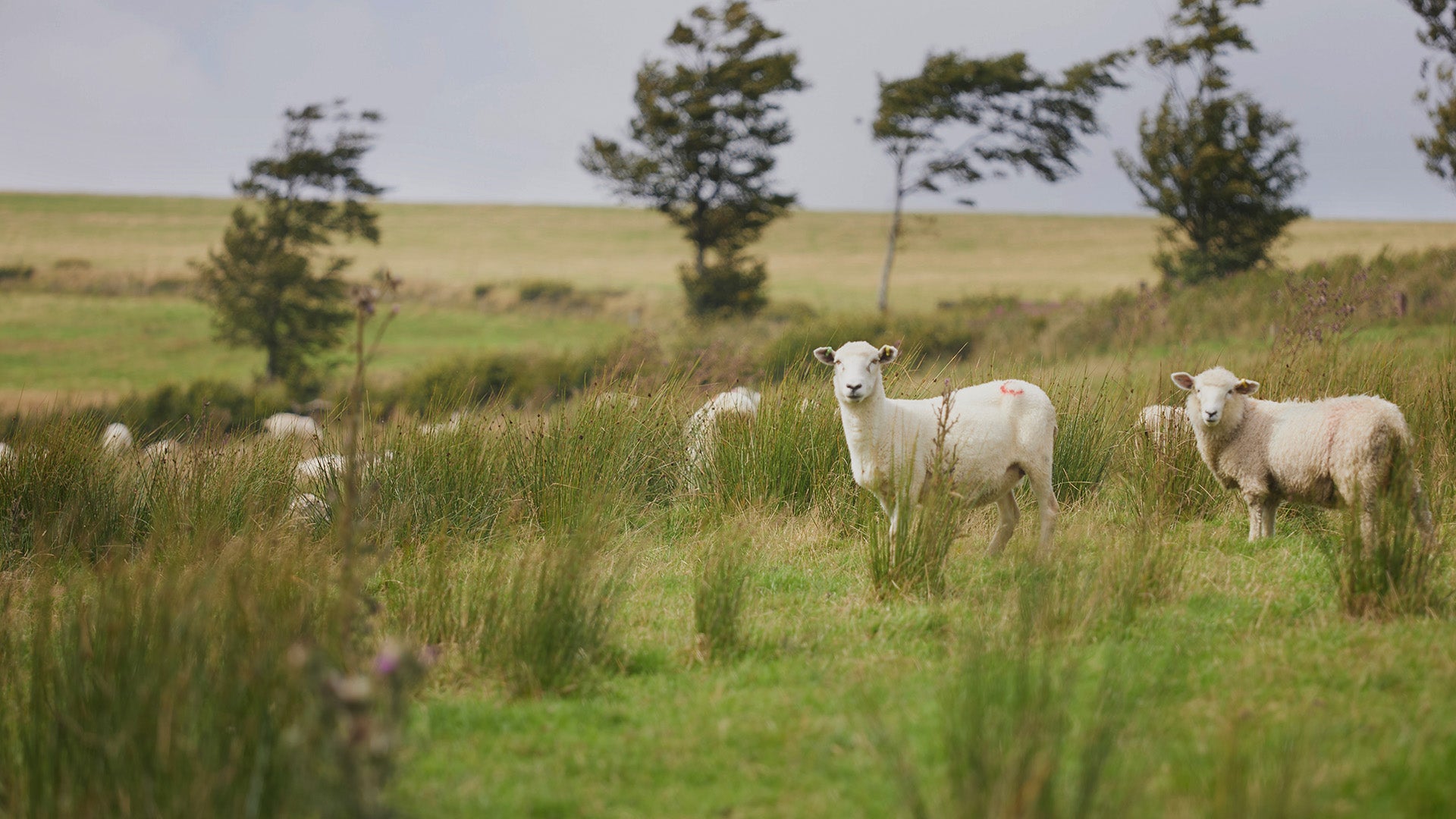
Local Fibre
Our mill is situated in the heart of North Devon. As much as possible we use the fibre which is reared and sheared on this land, utilising the unique properties of each breed in our yarn and tops.
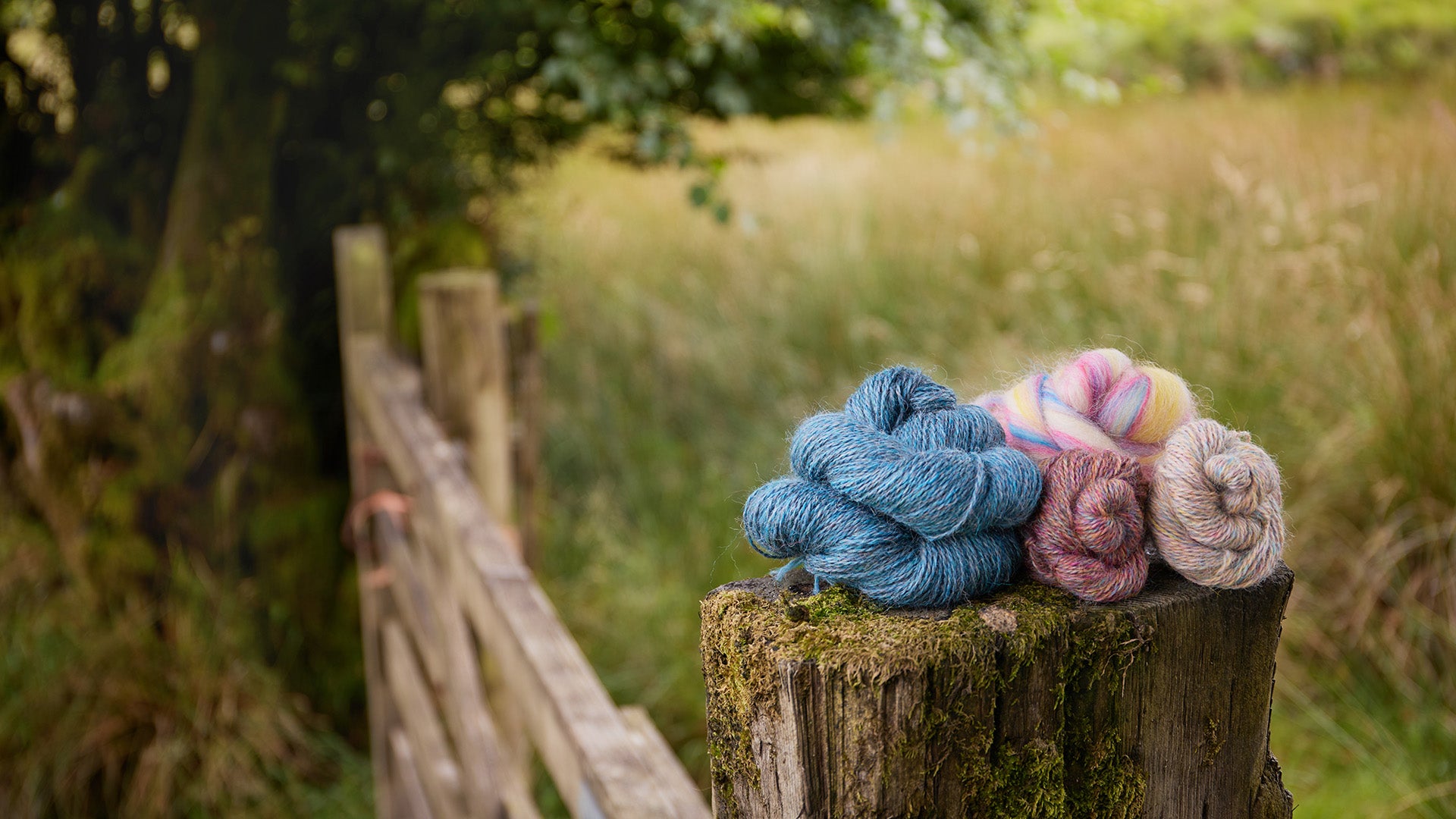
Unique Yarn & Tops
The hours of work and skill that go into producing one of our yarn and tops ranges is reflected in the dedication of a knitter, spinner or crocheter during the intricate journey from beginning to finished garment – both are a harmony of tradition and creativity.
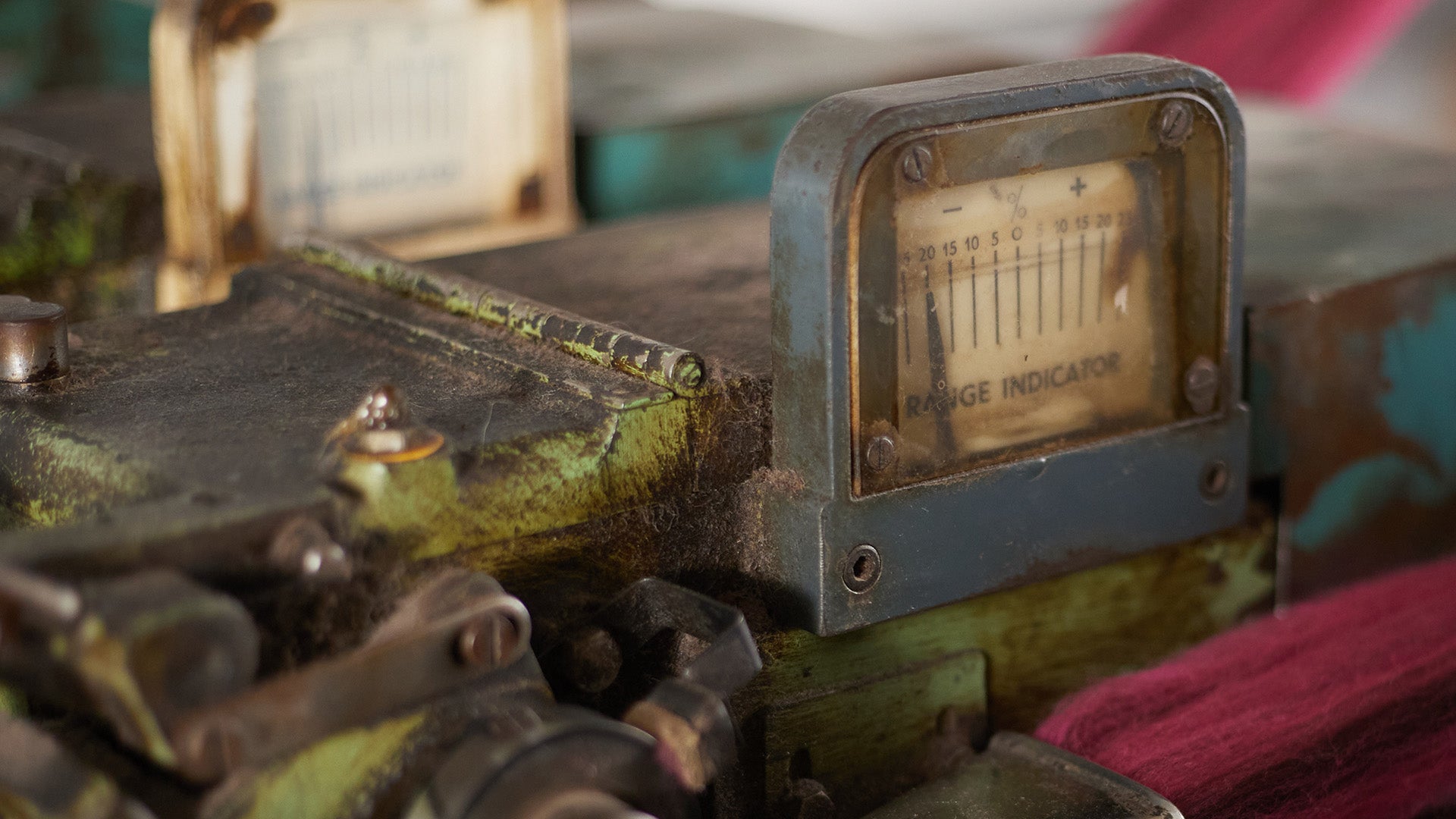
Vintage Machines
Our Mill is one of only a handful of small-scale worsted spinning mills still operating in the UK. Many of our vintage machines were rescued from old, traditional mills before their closure. Keeping them going is a labour of love, but we reckon that the resulting woolly treats are well worth it!
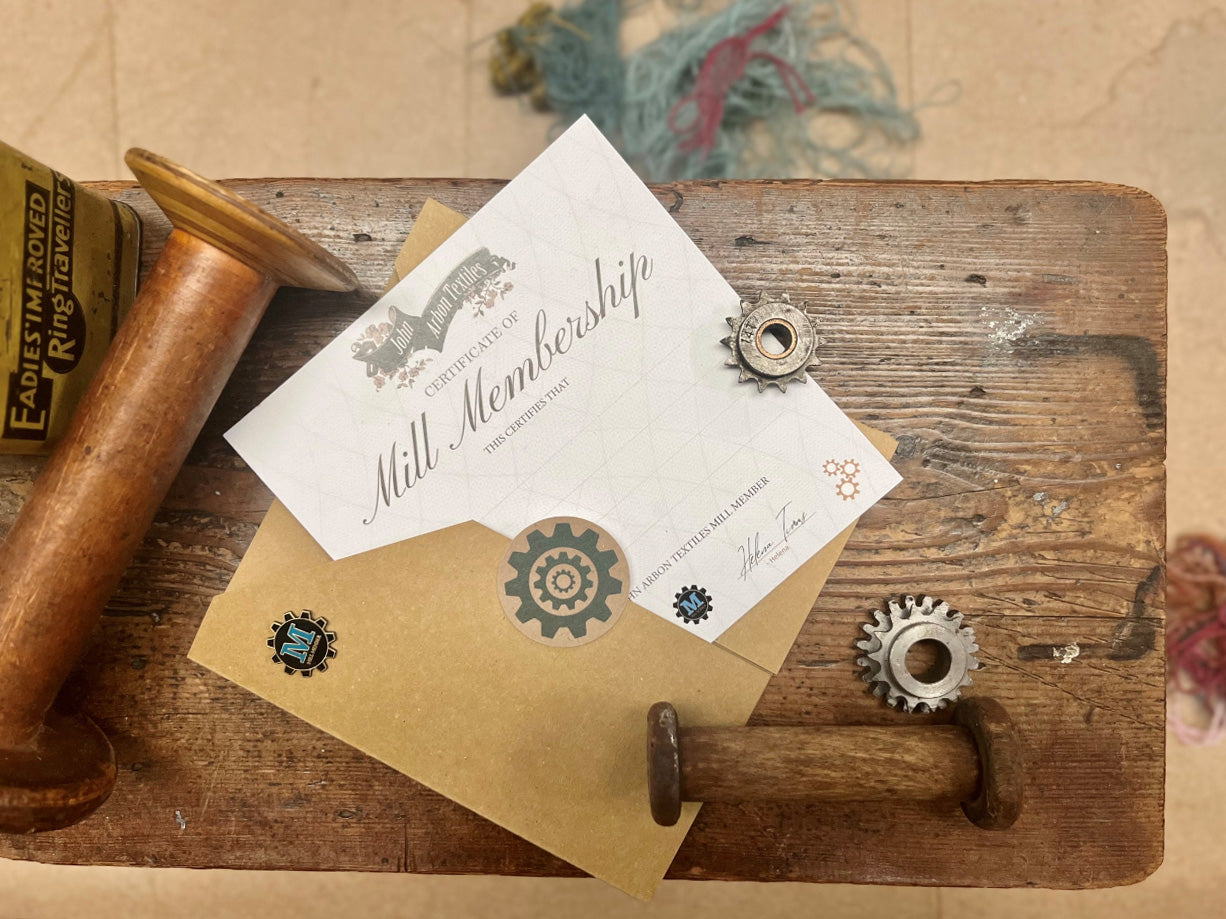
10% Off with Mill Membership
Our Mill Members receive access to oodles of limited edition specials, early access to new products, a lifetime 10% discount and our heart felt thanks for helping us do what we love every day!

